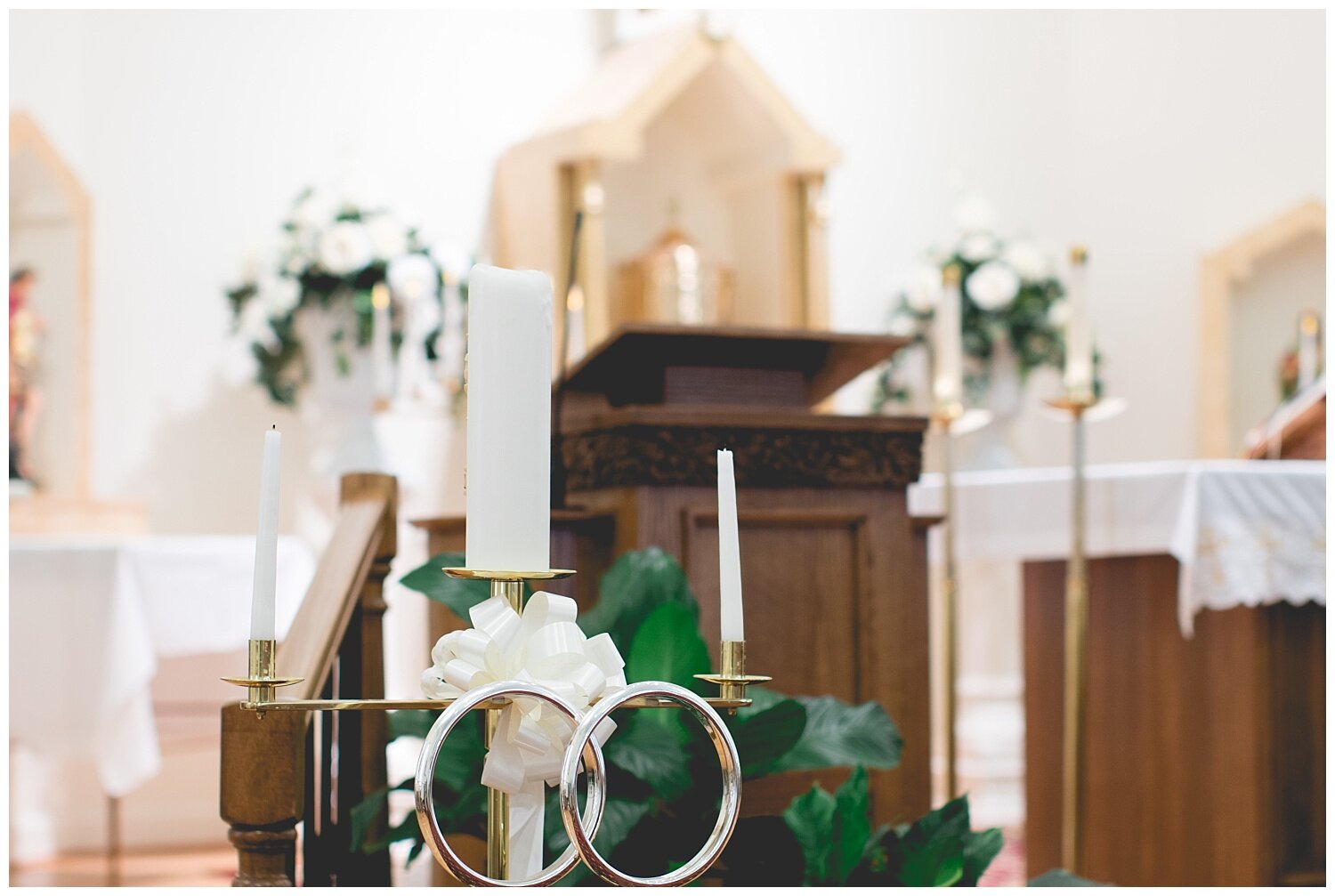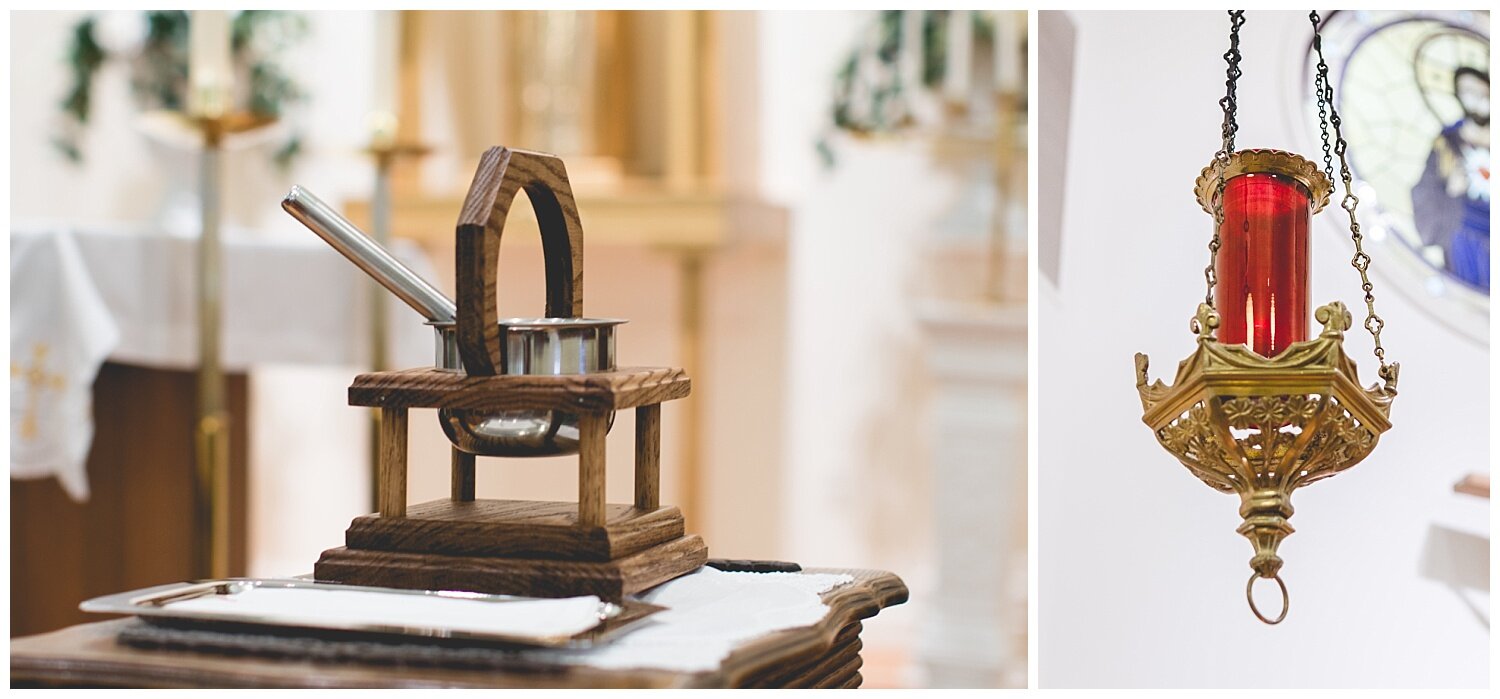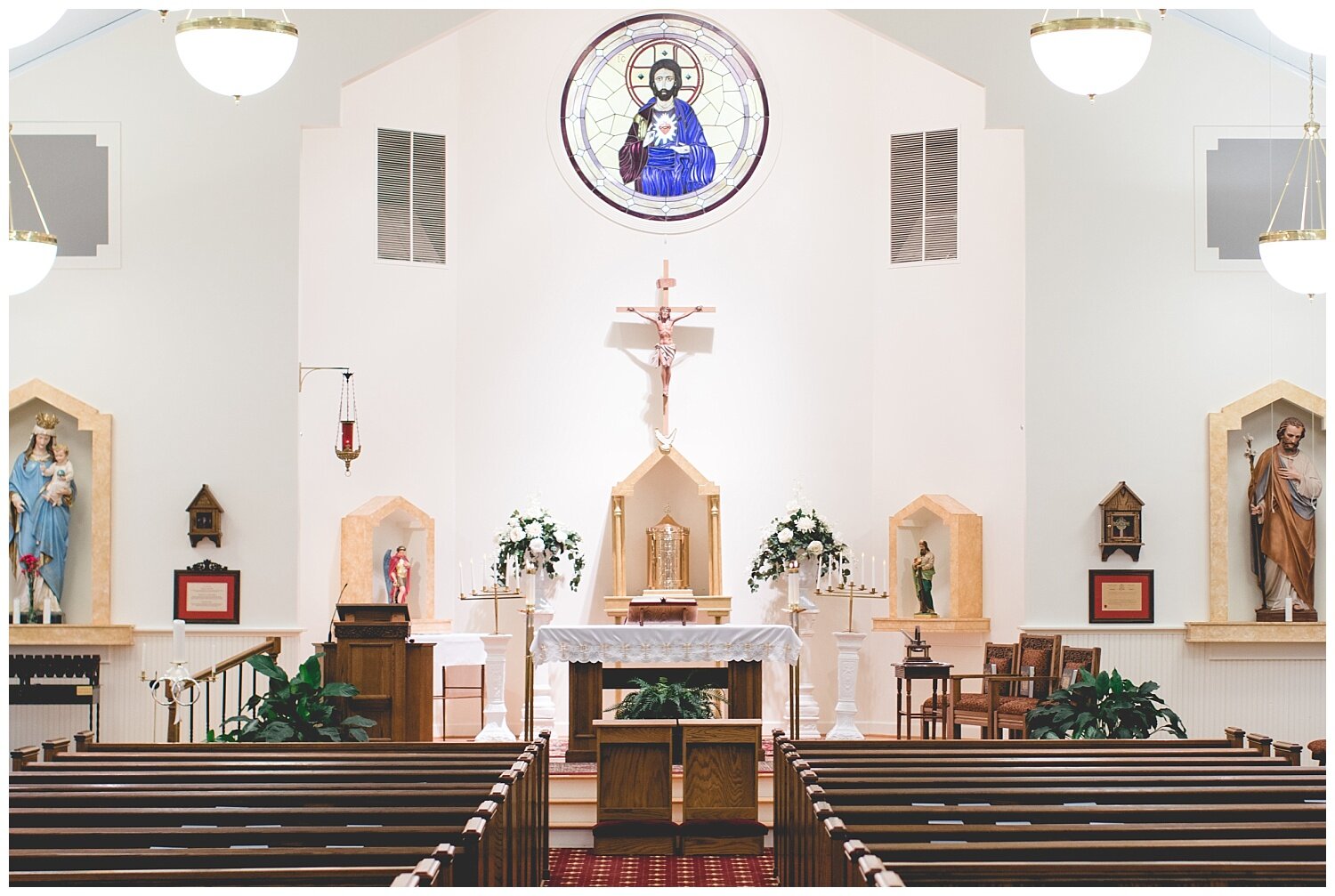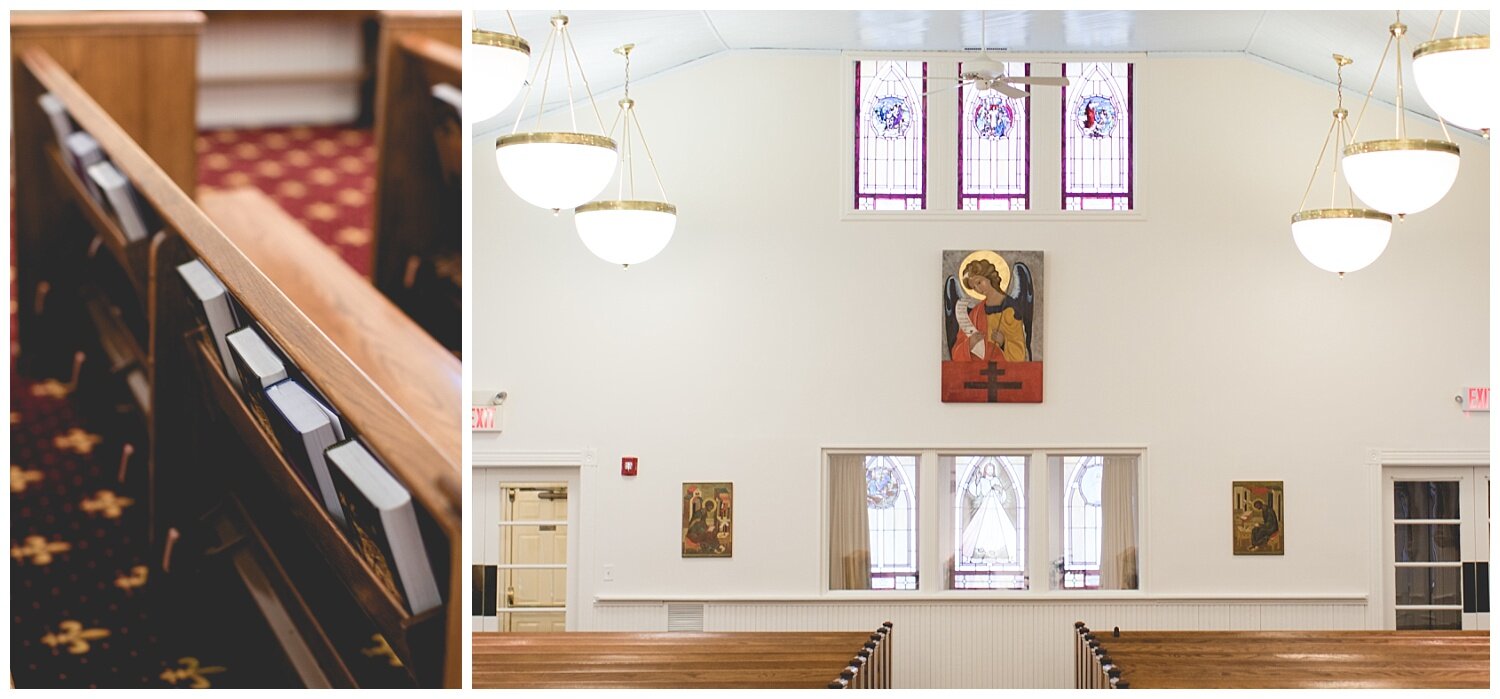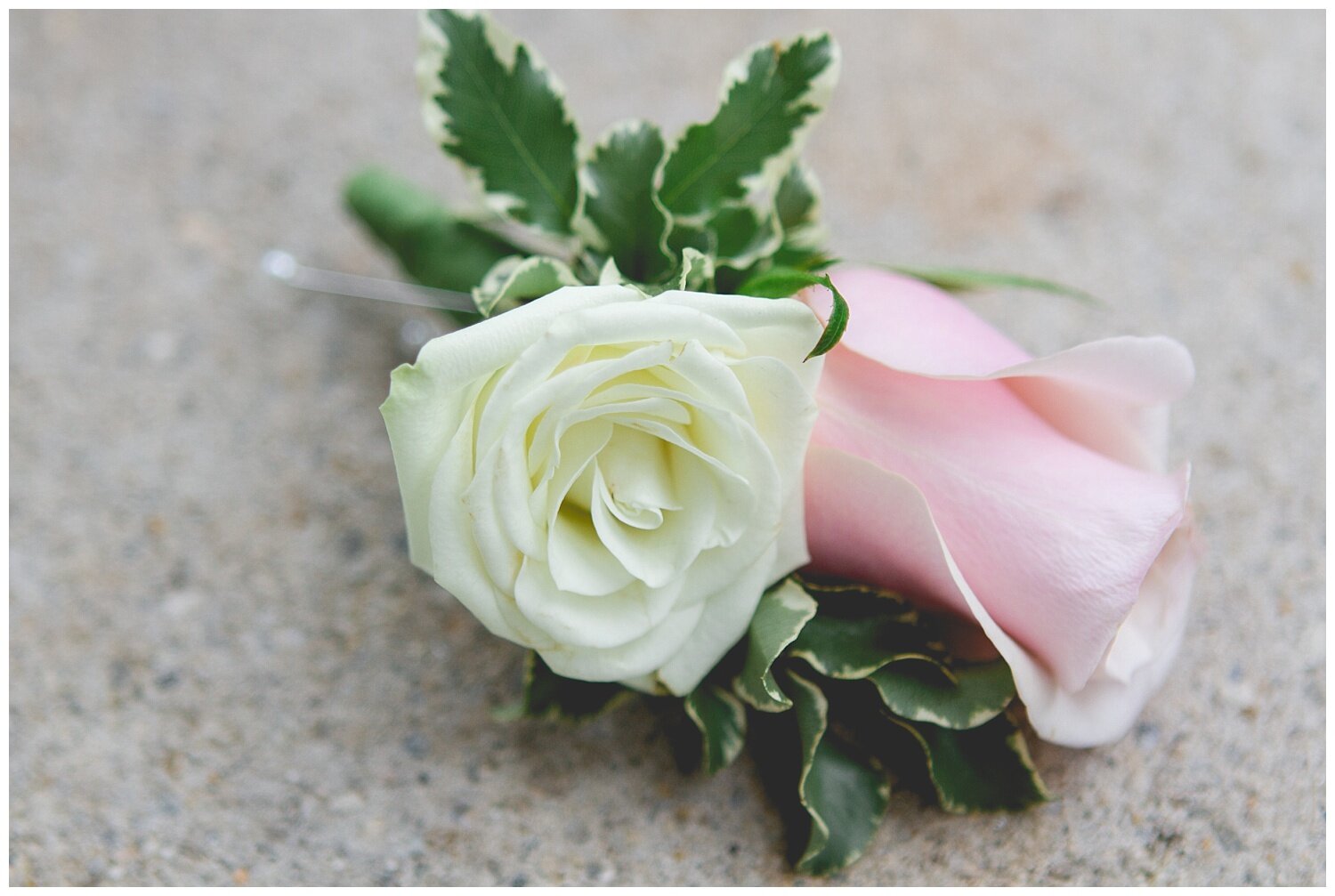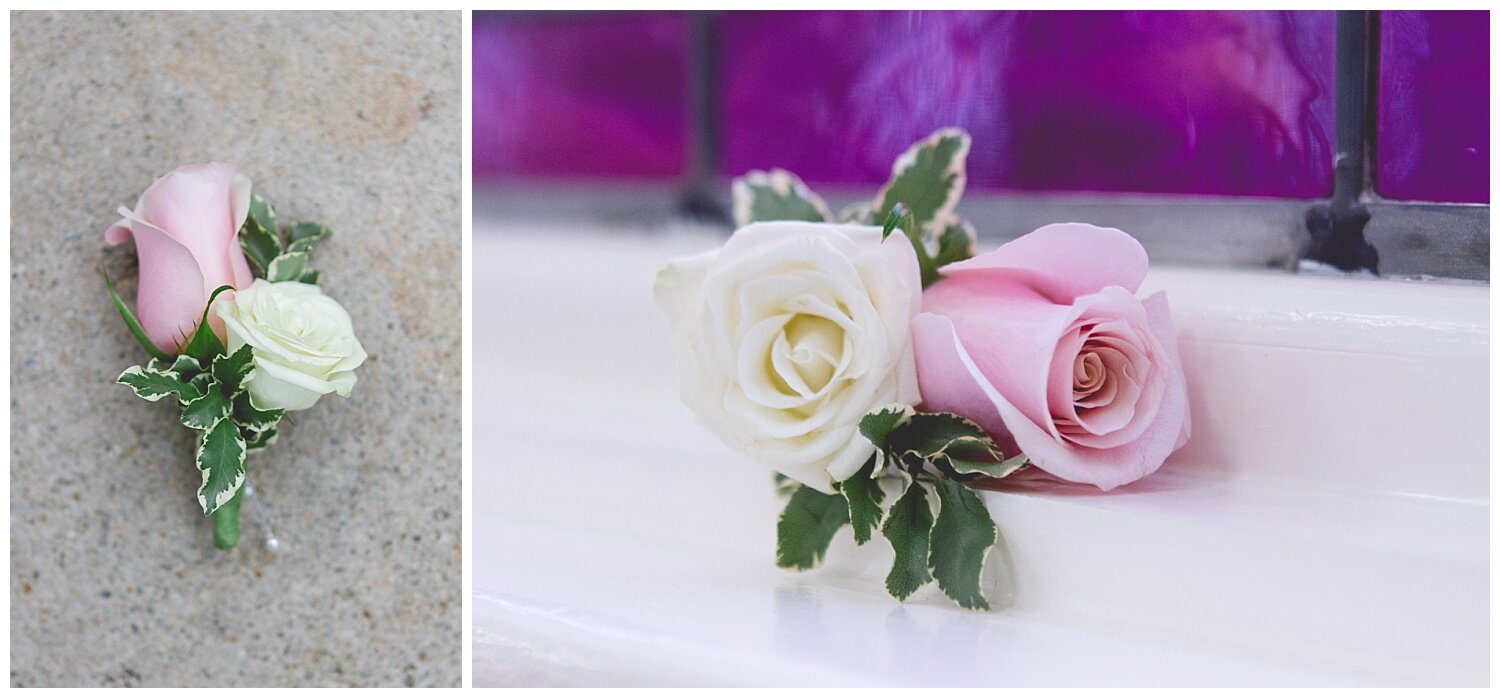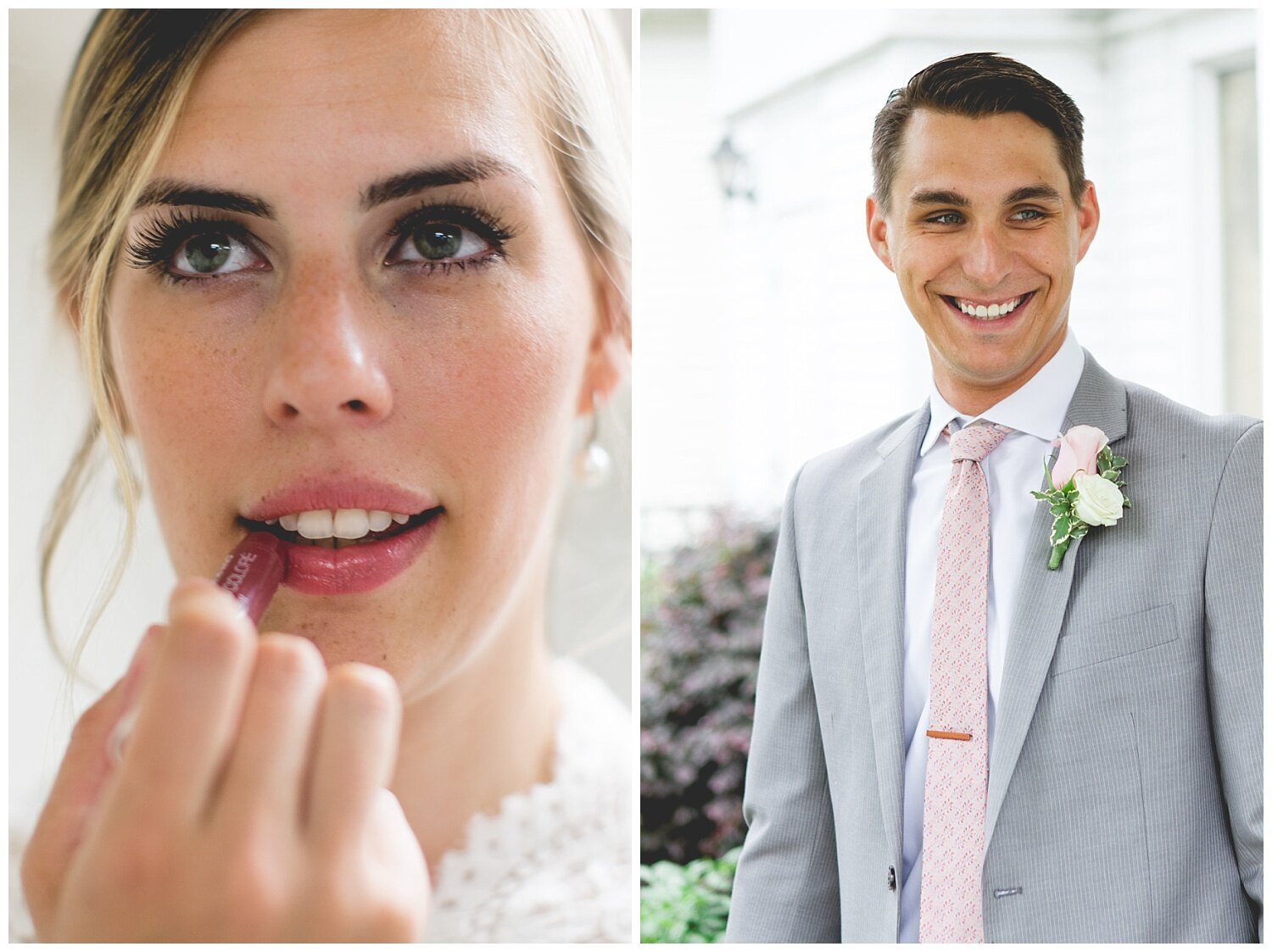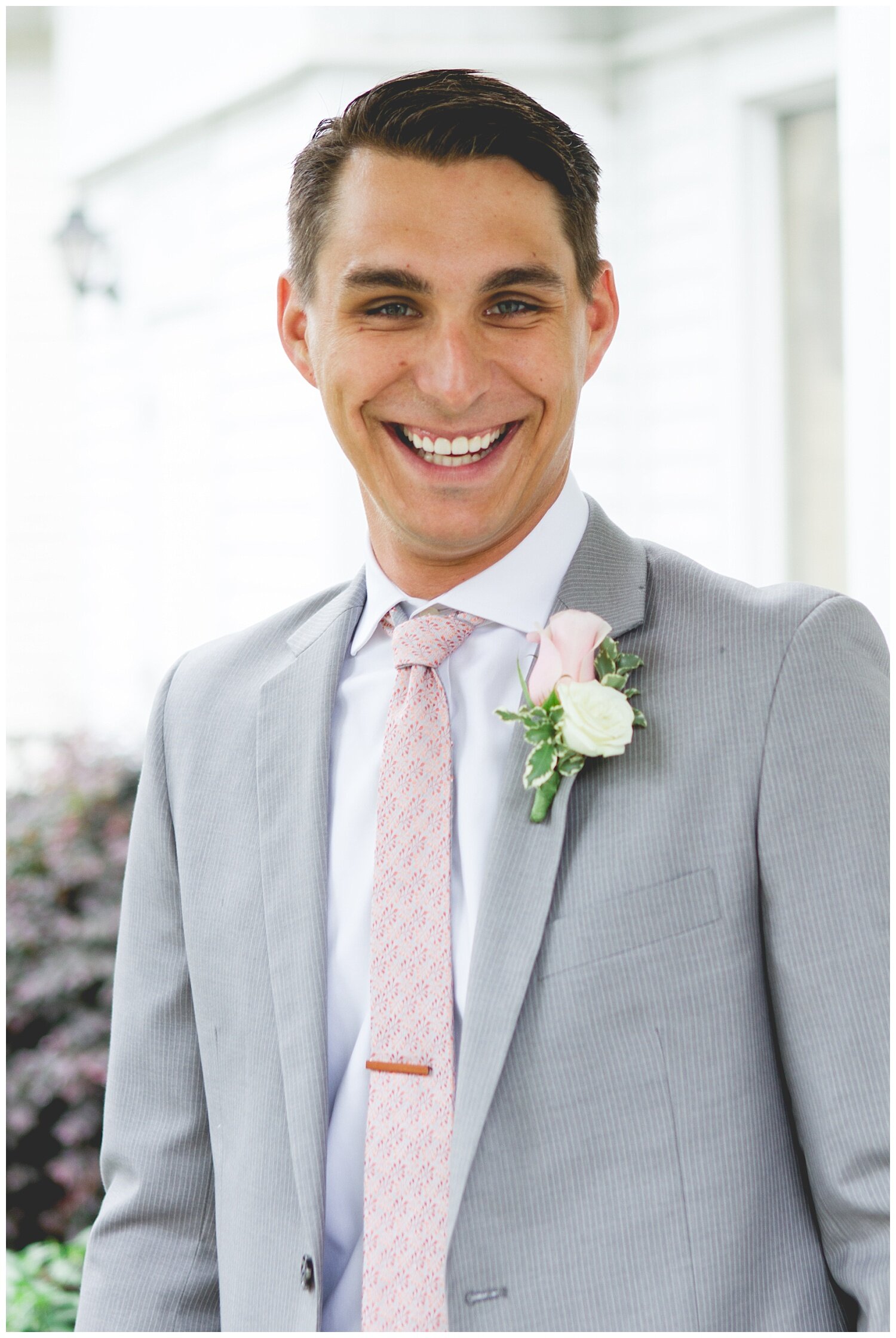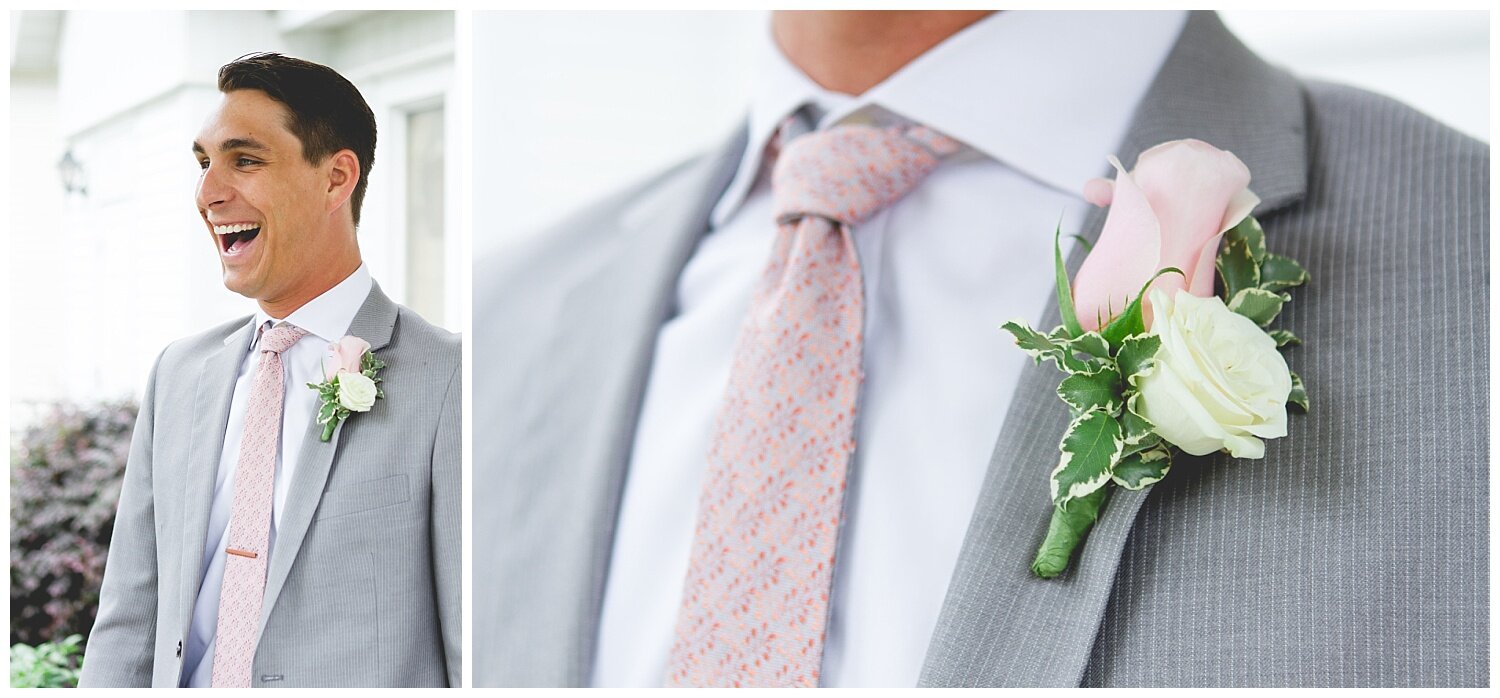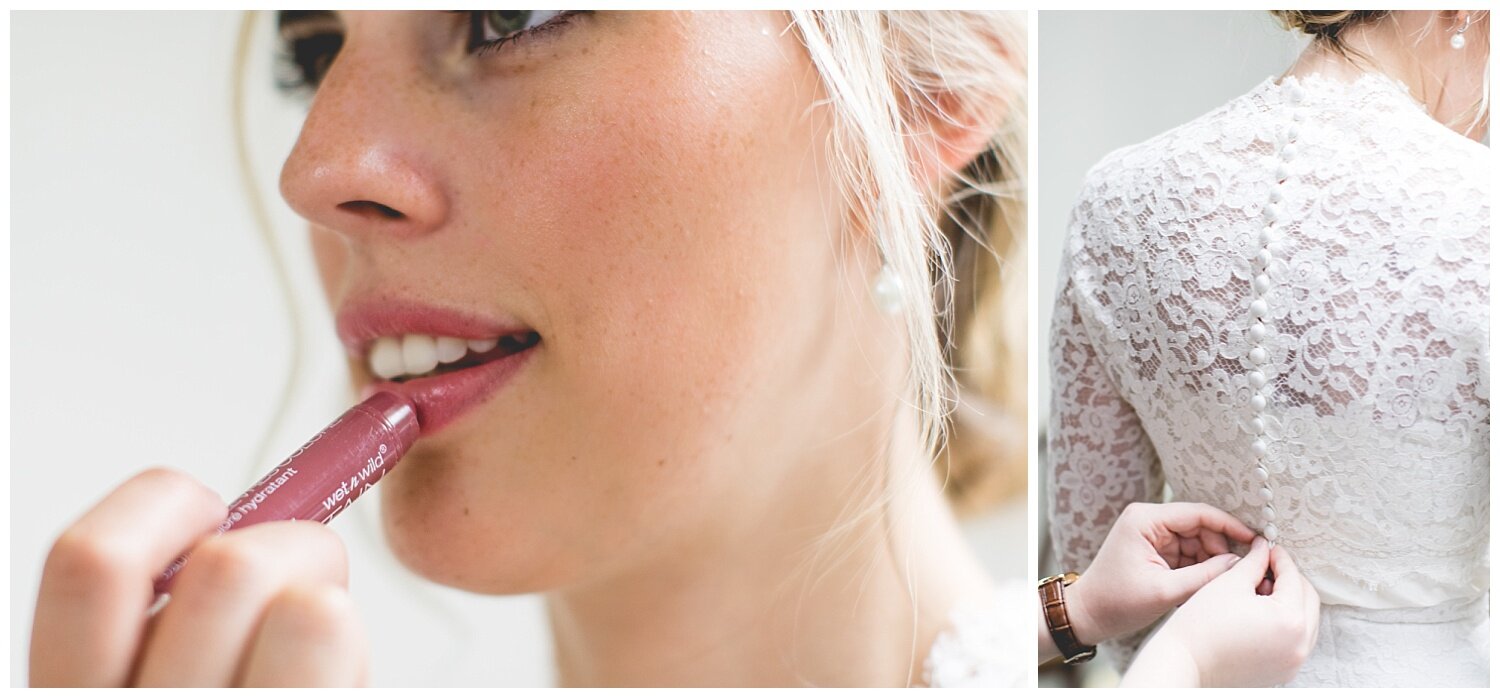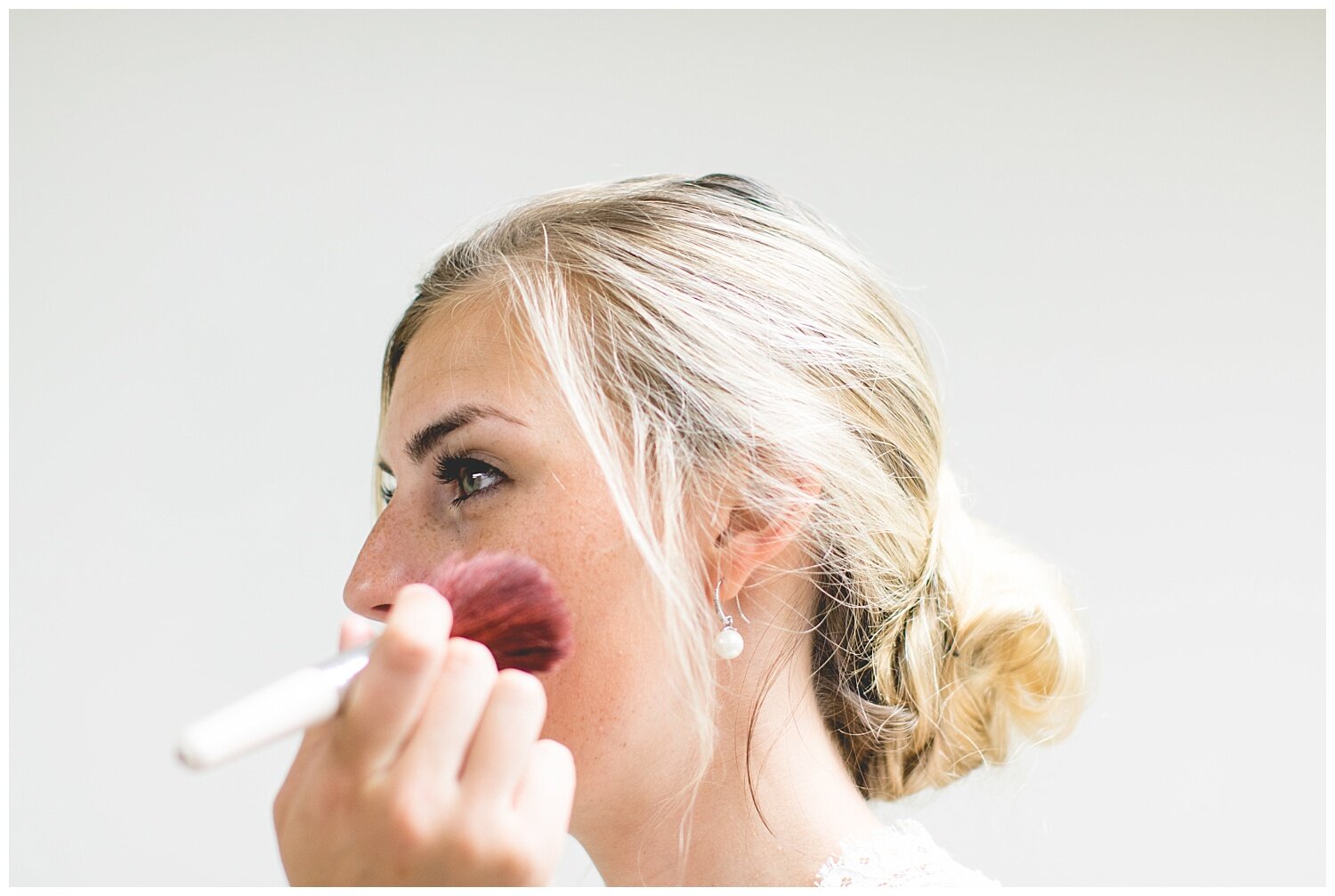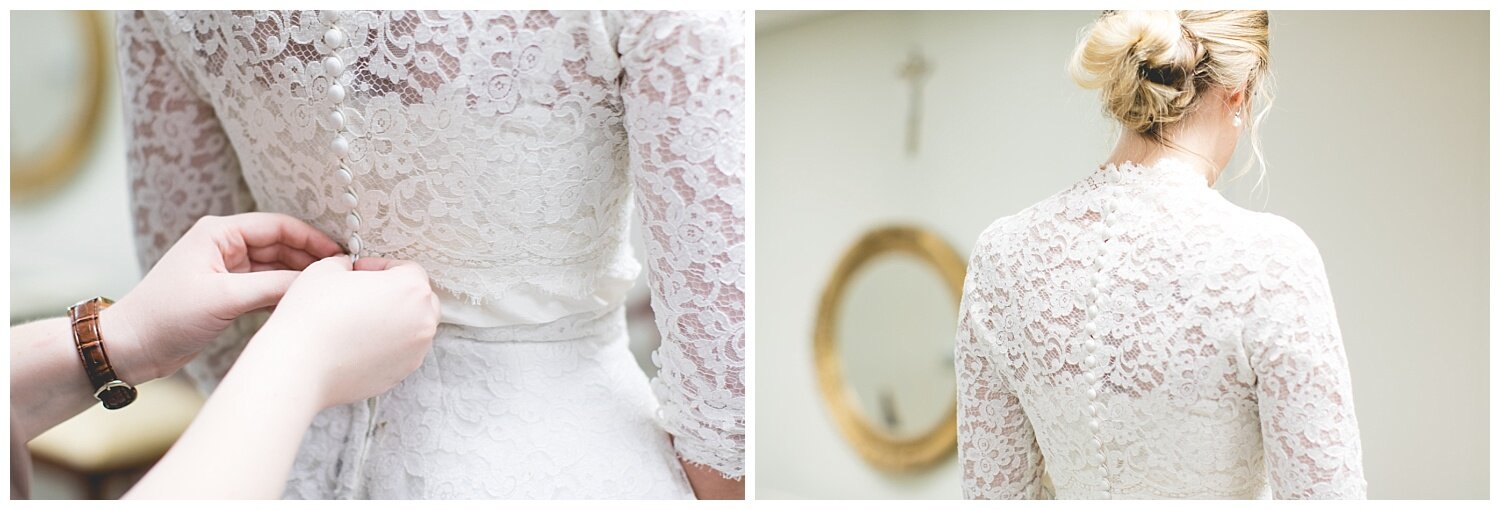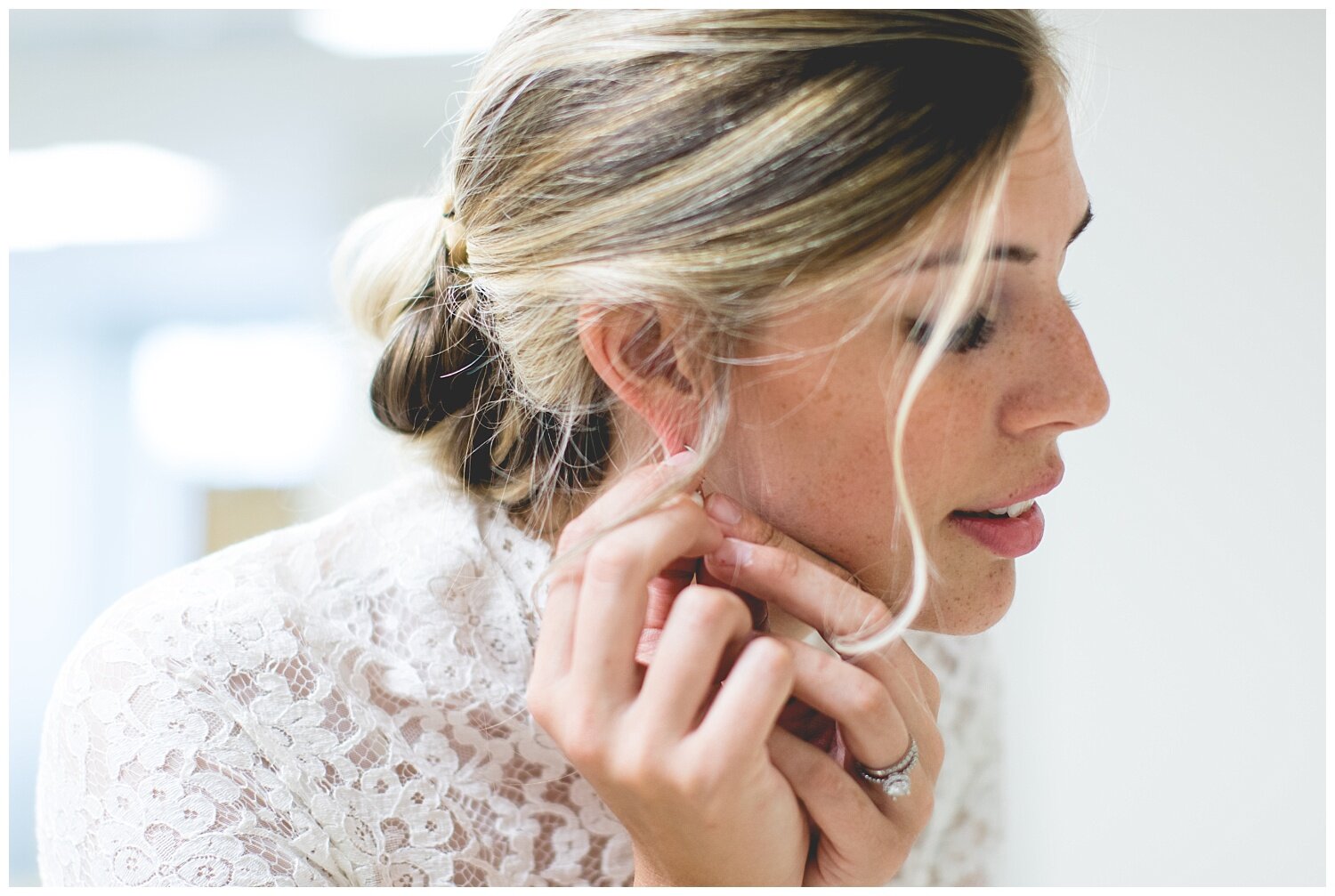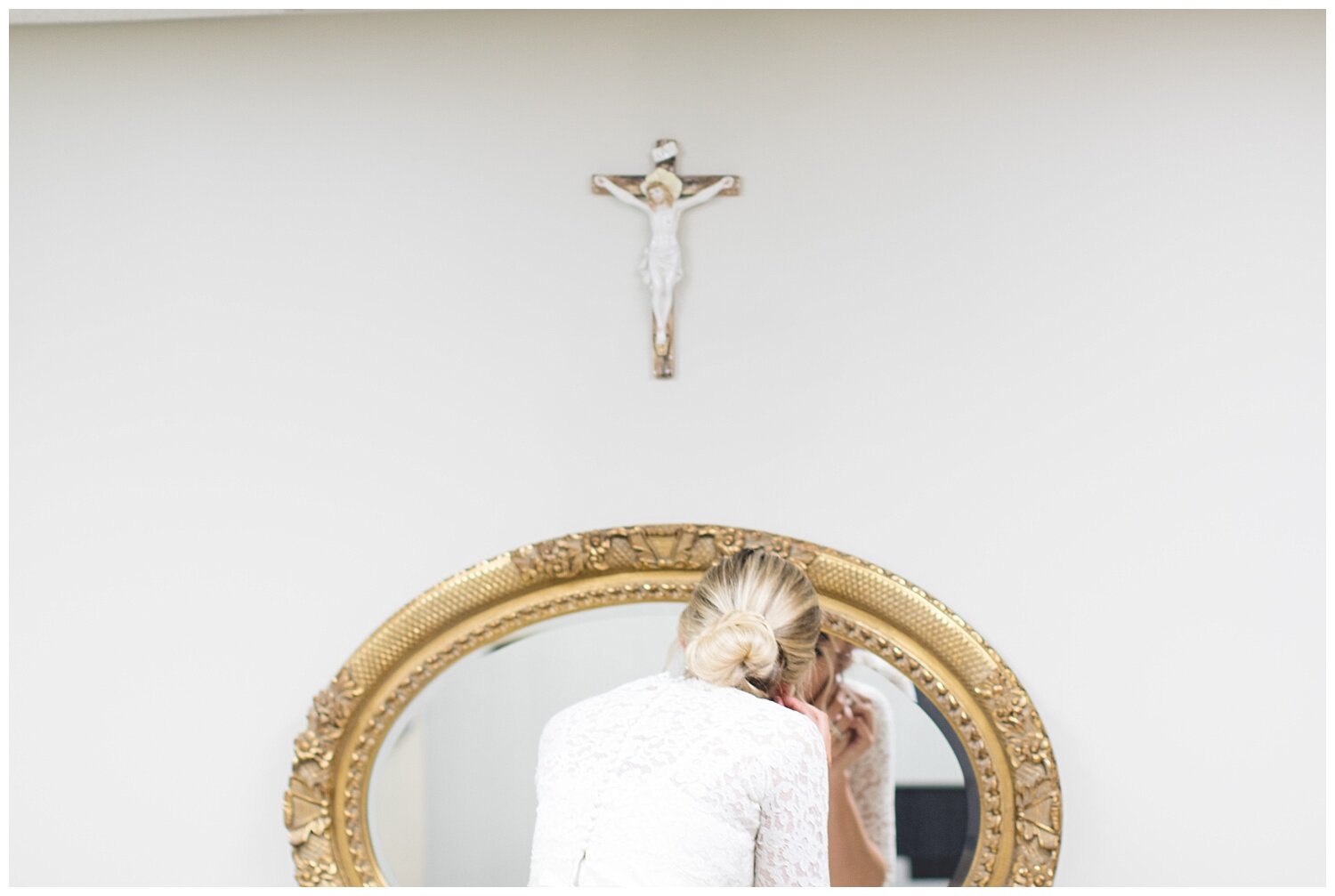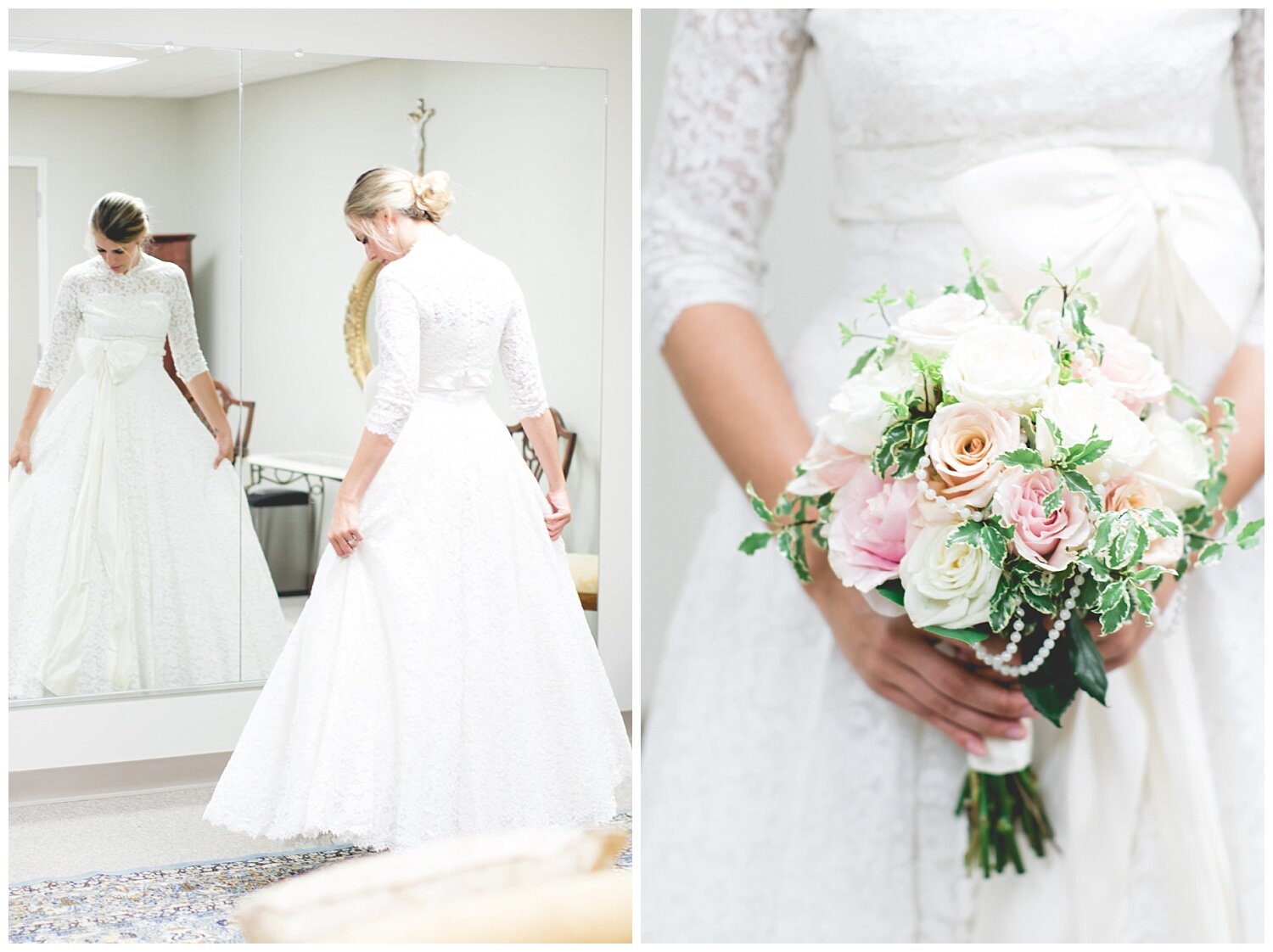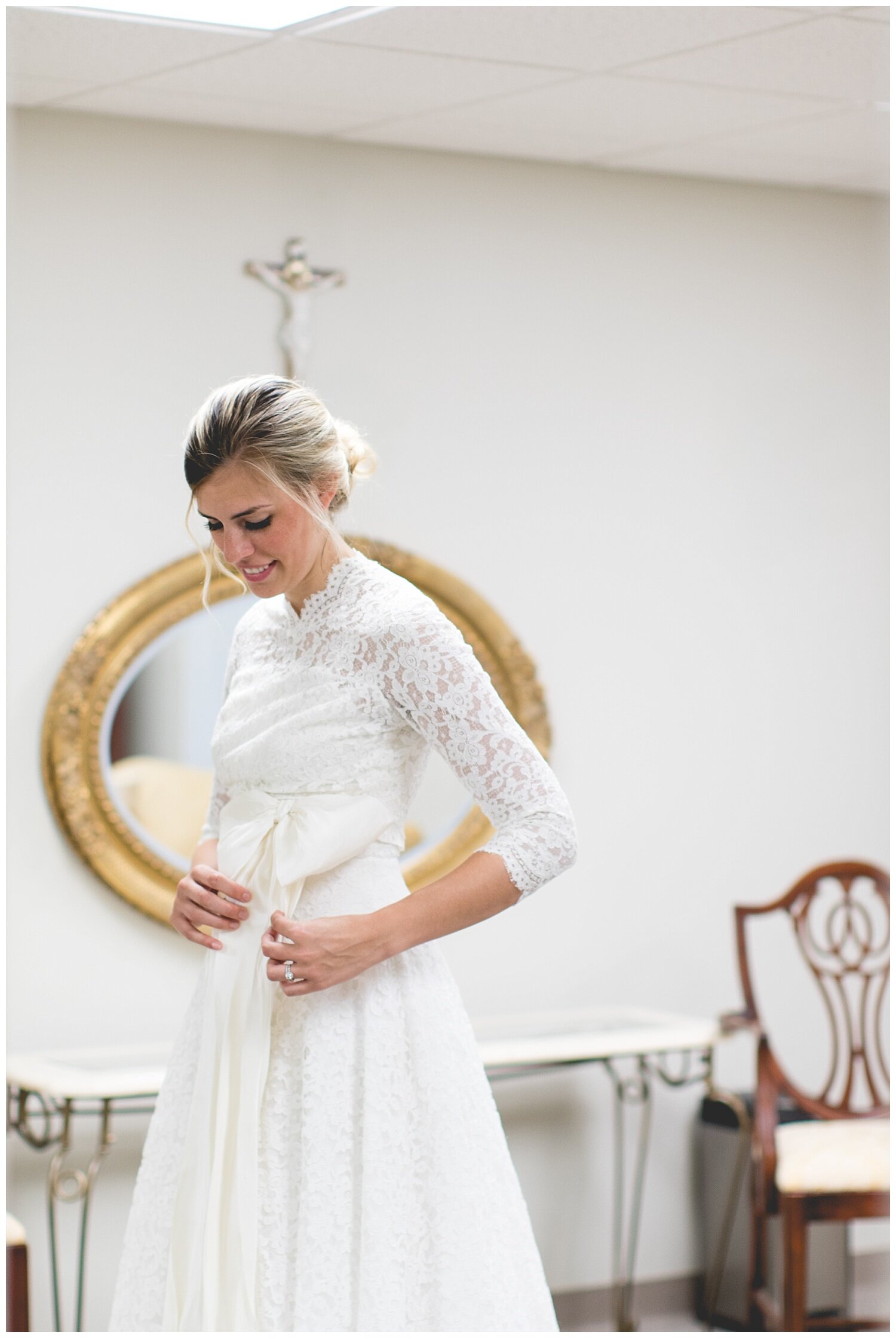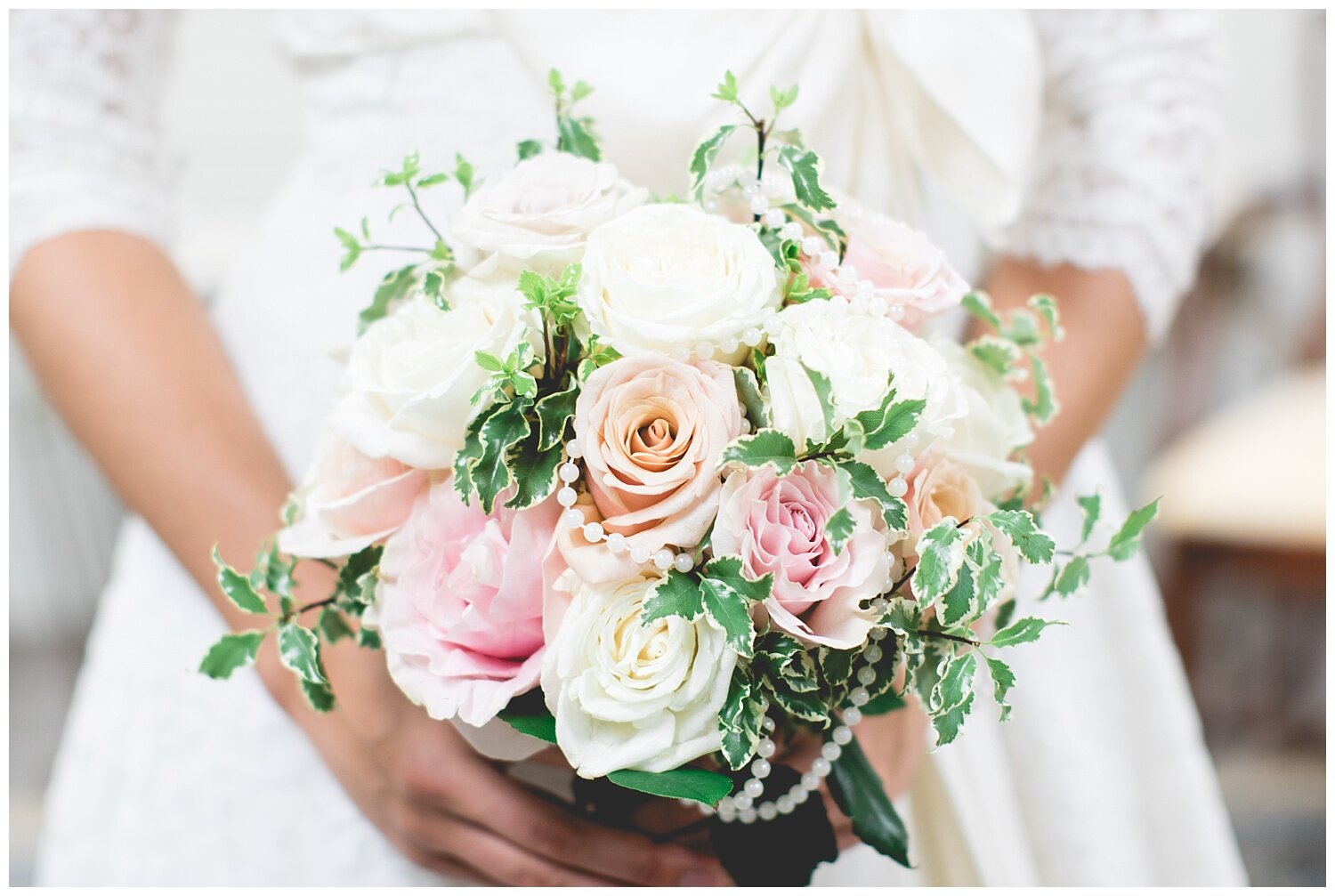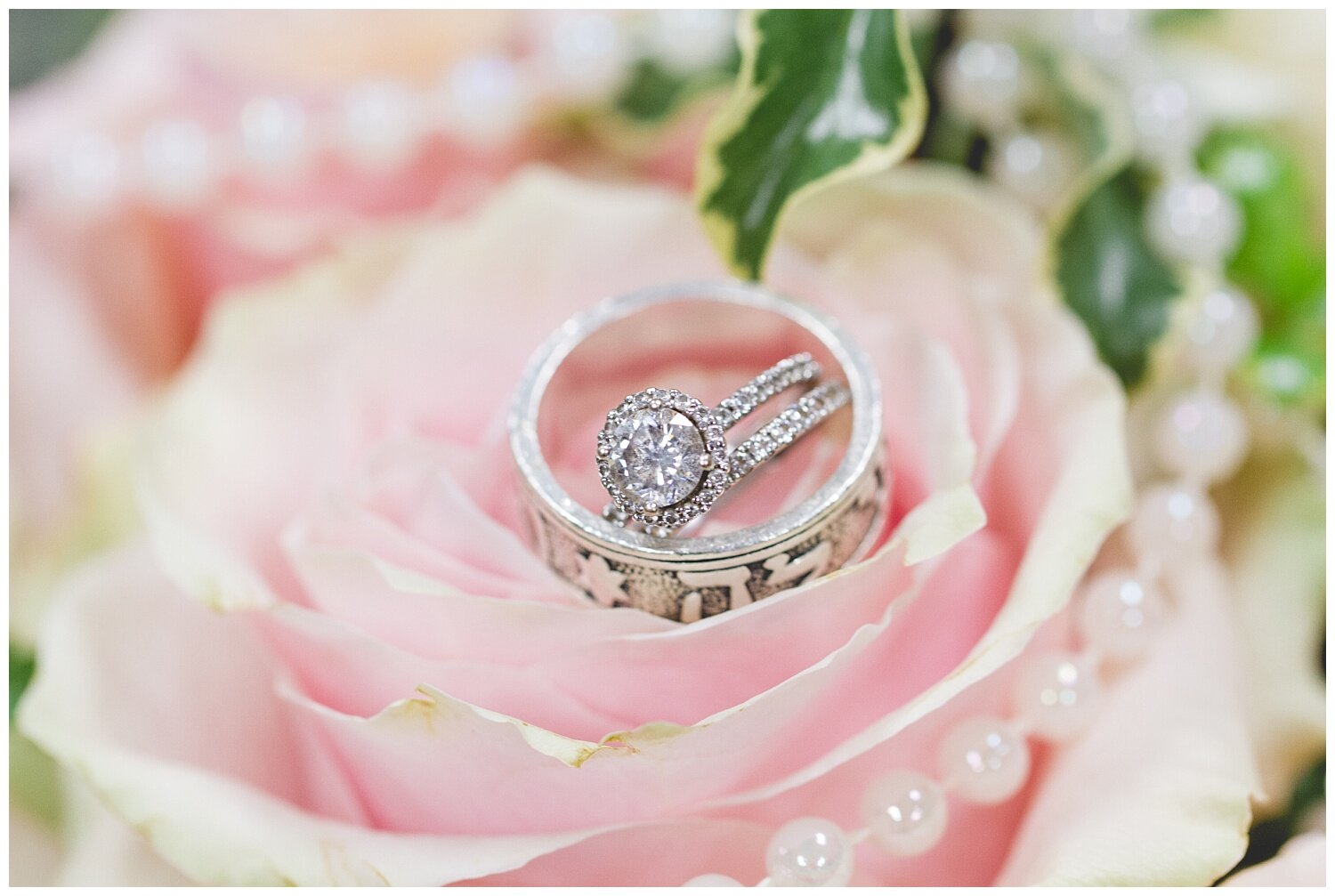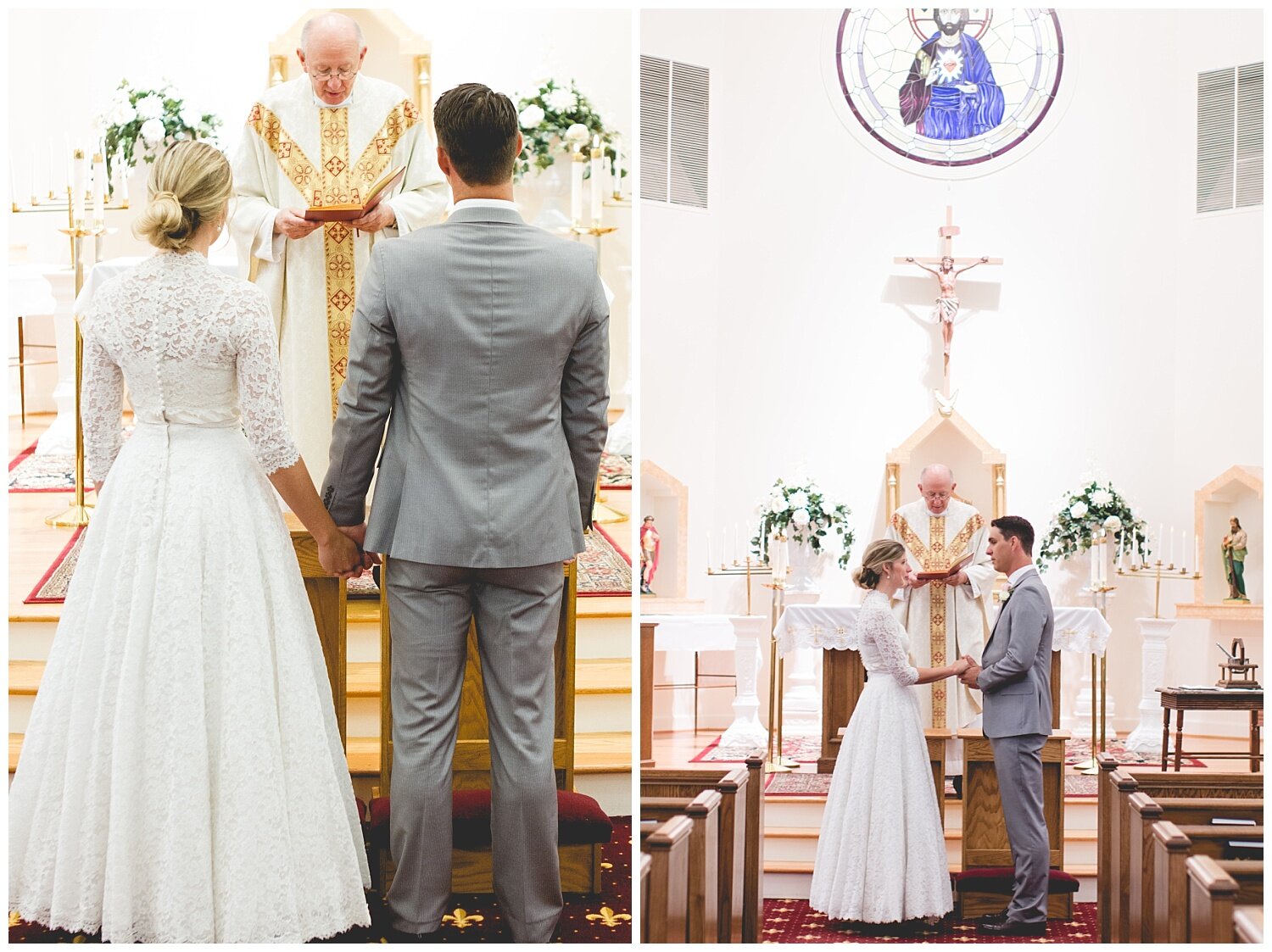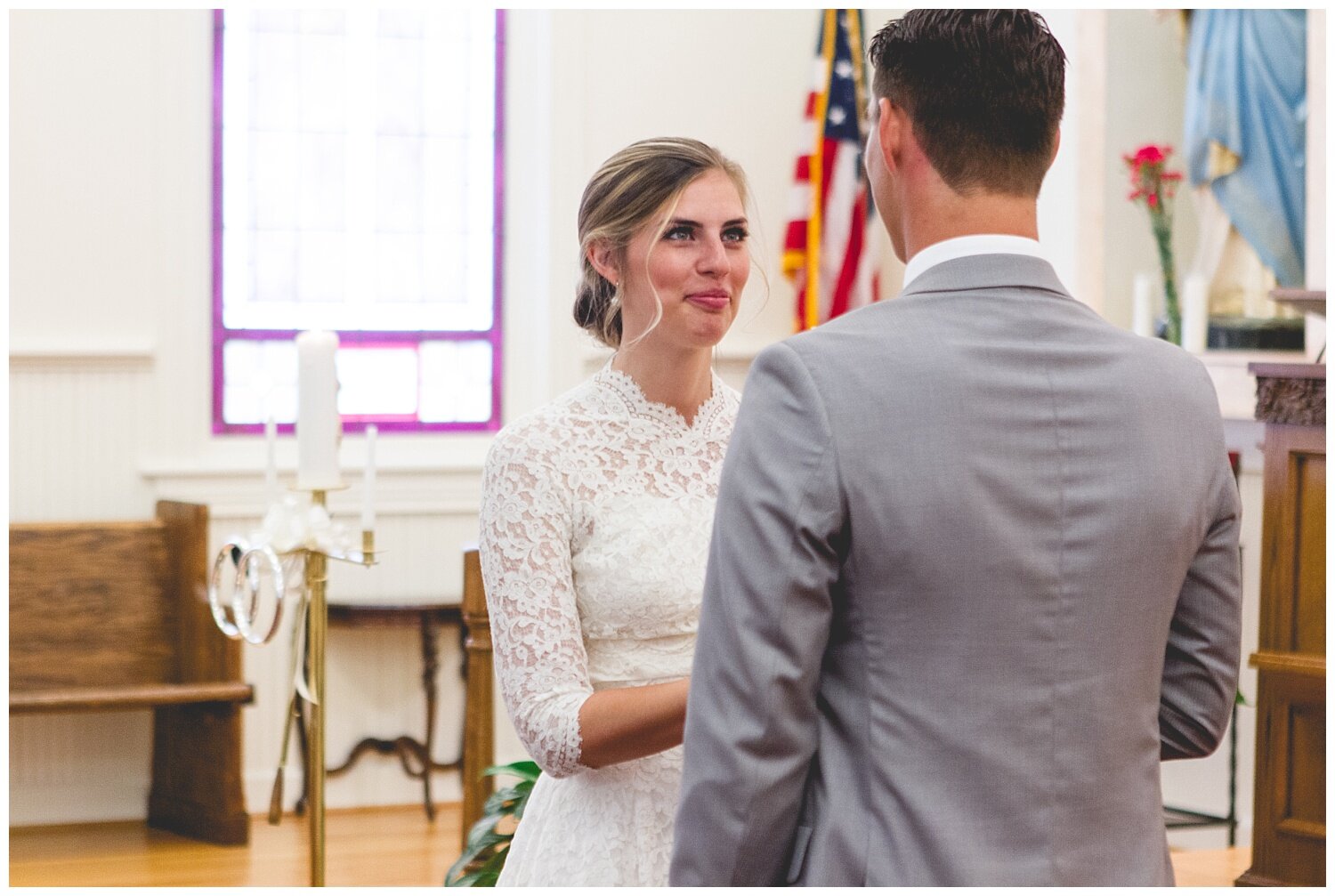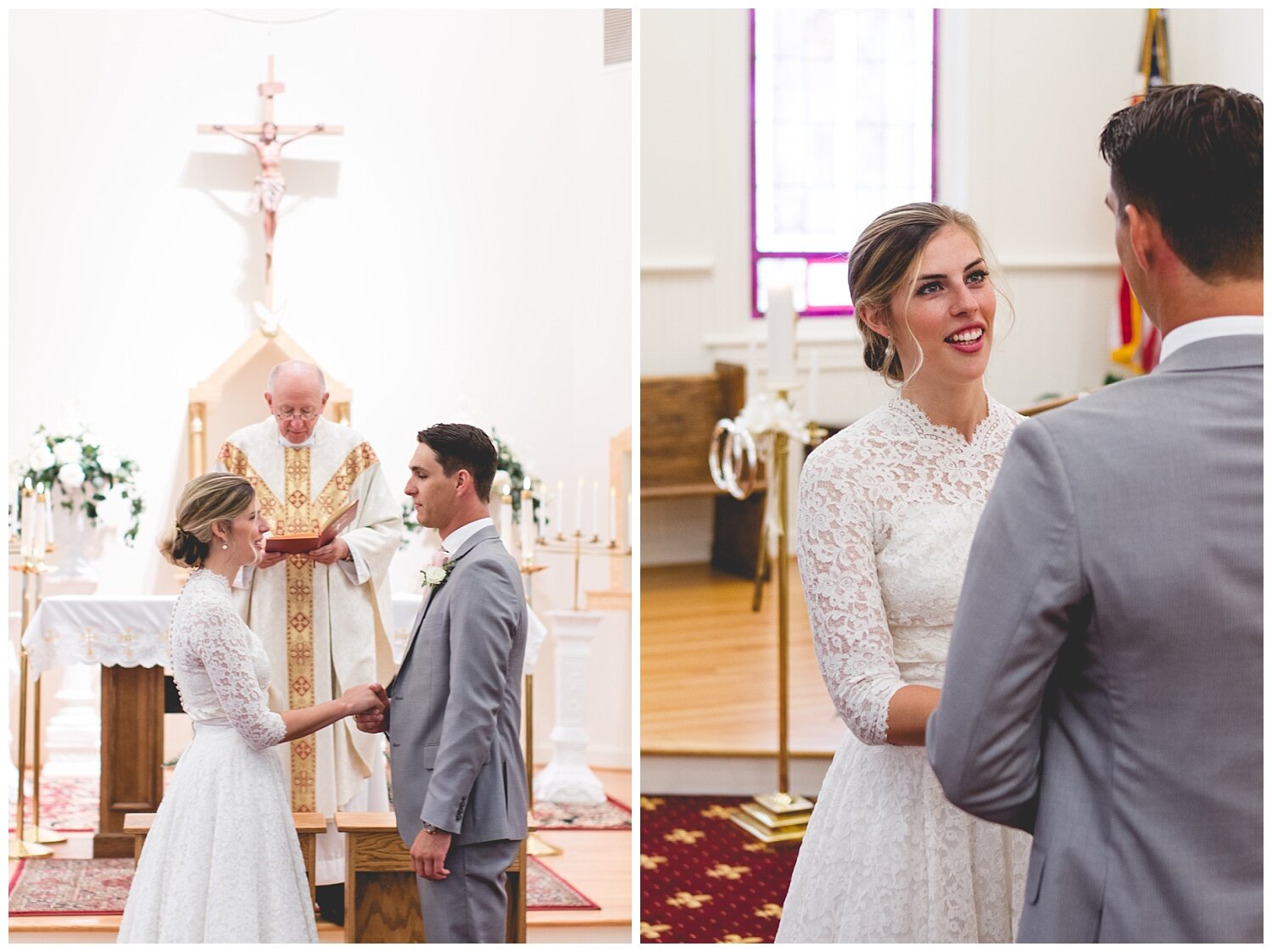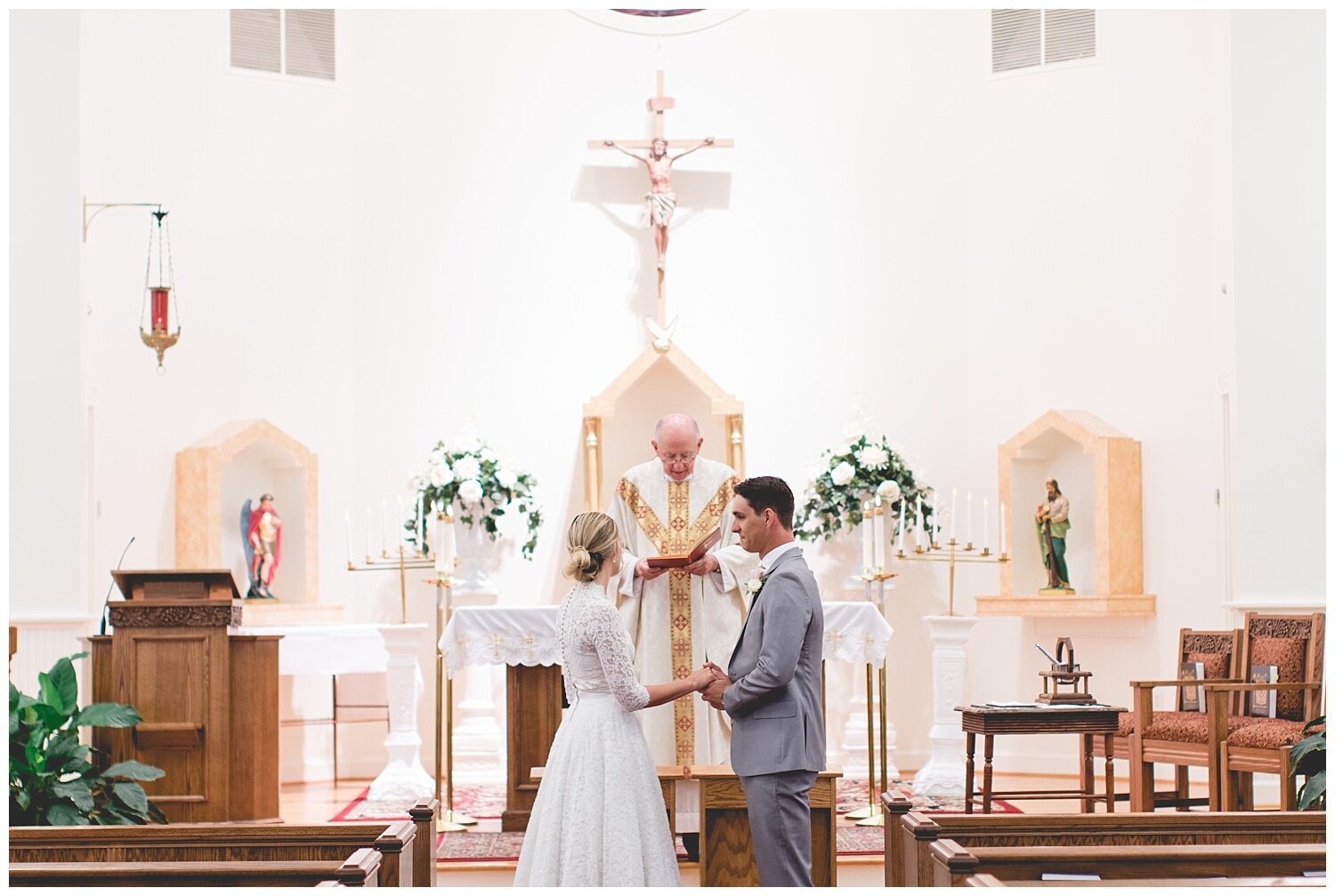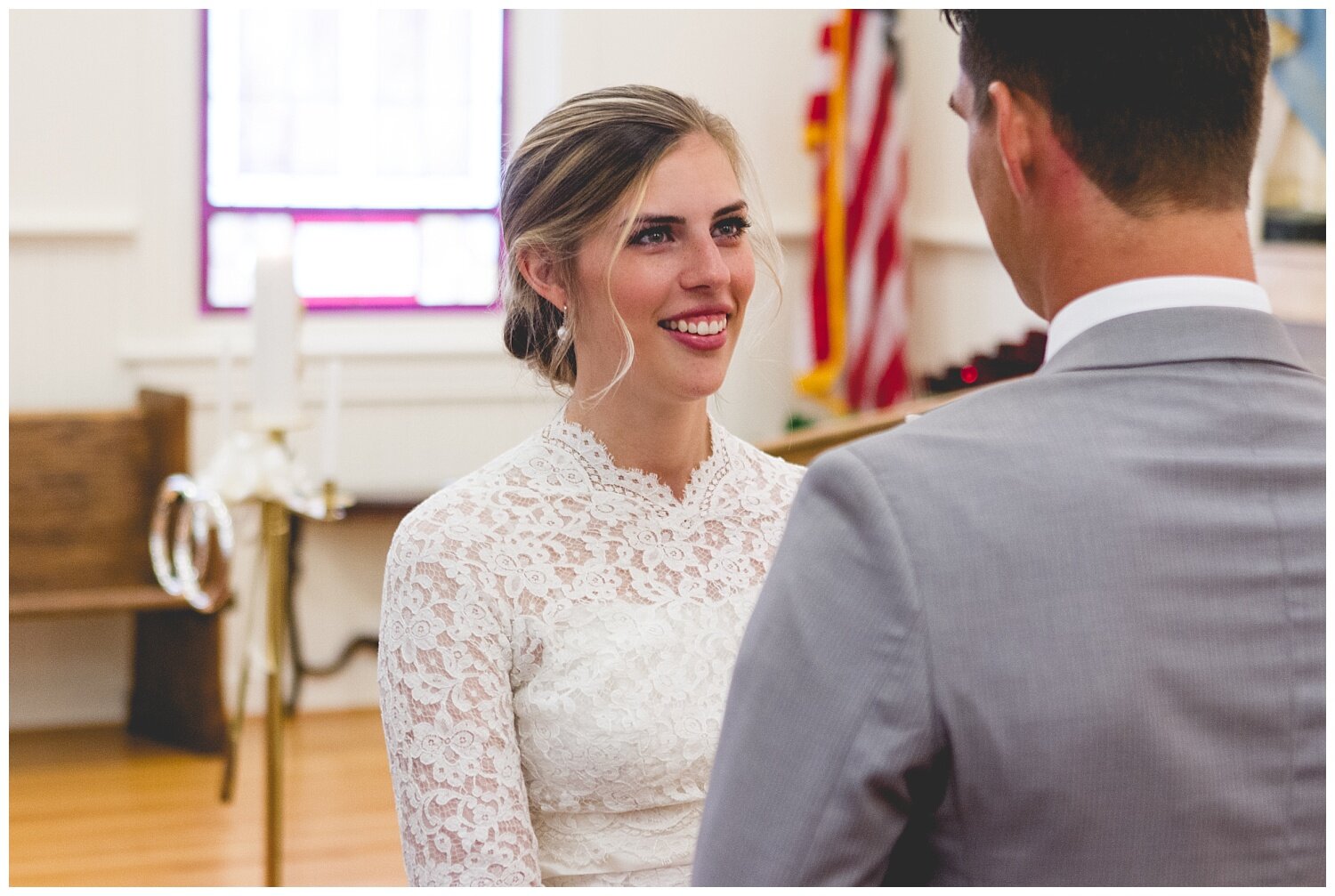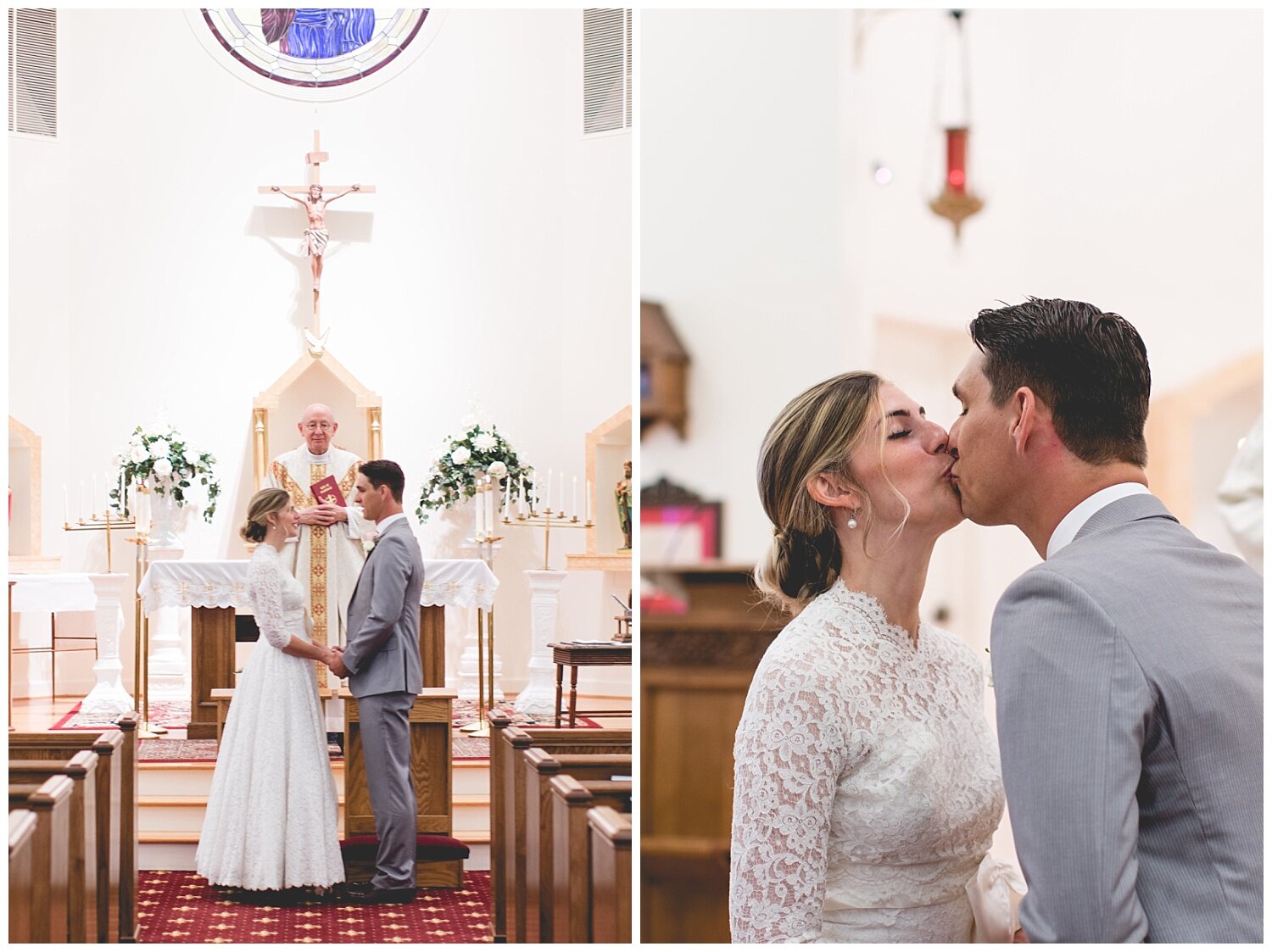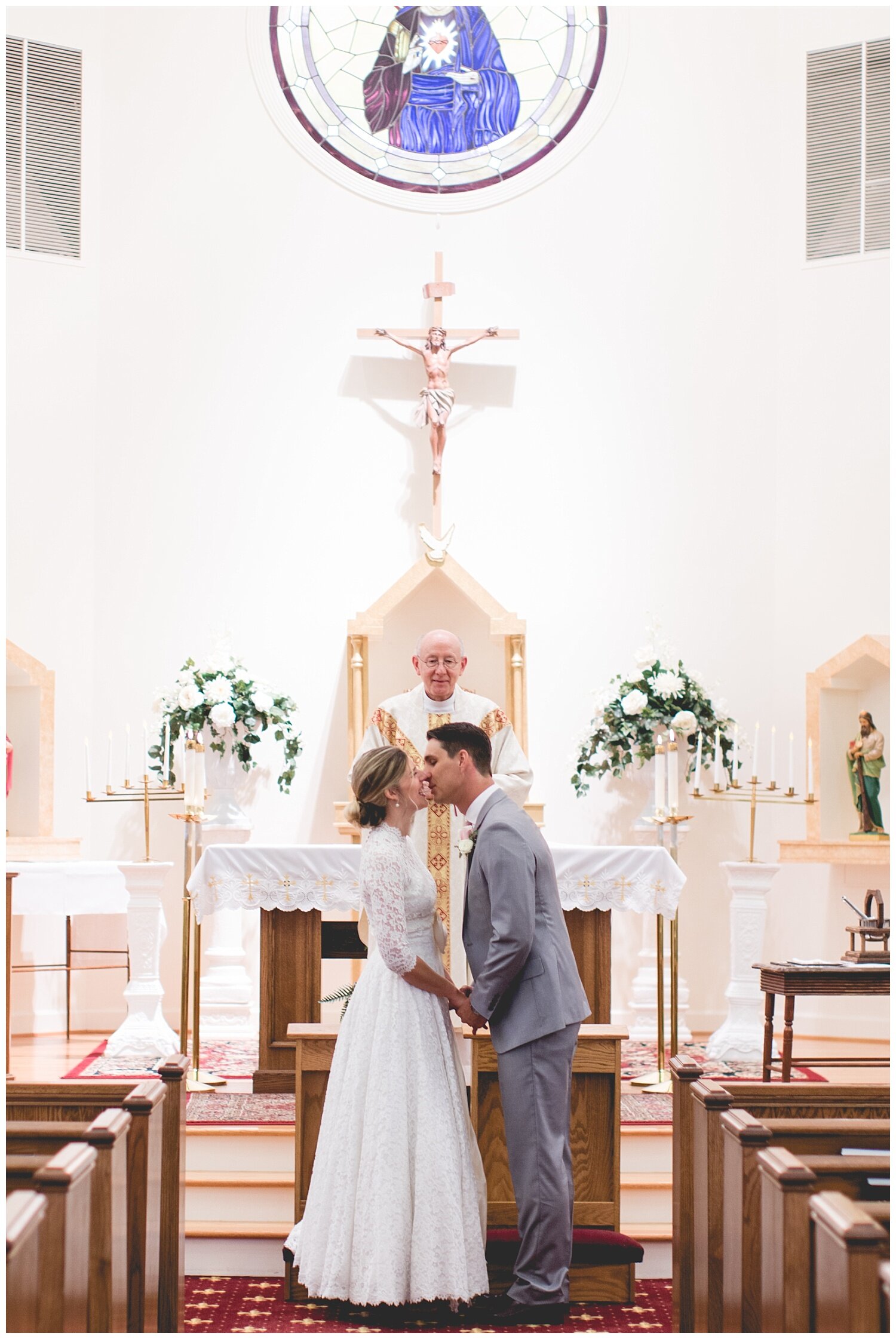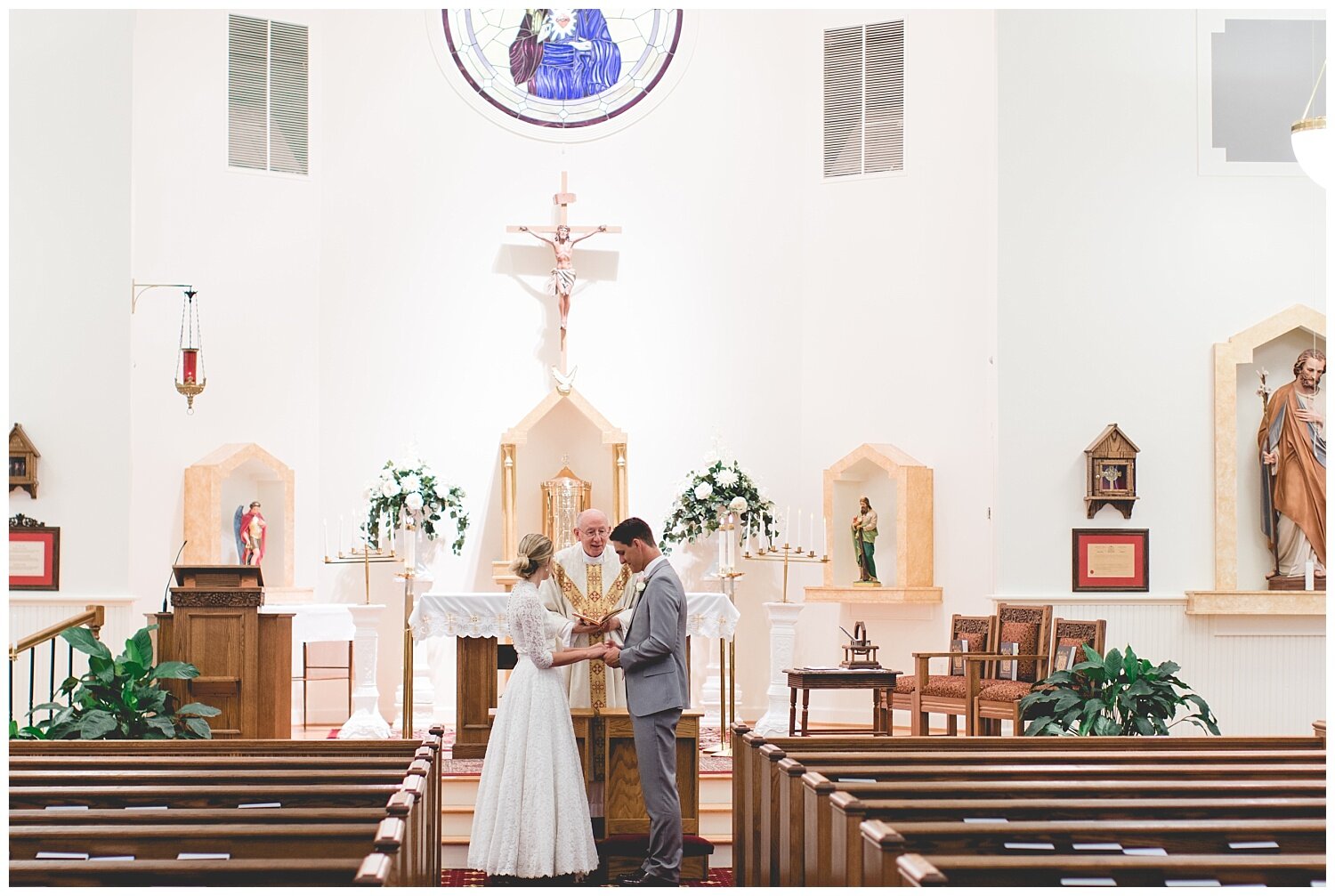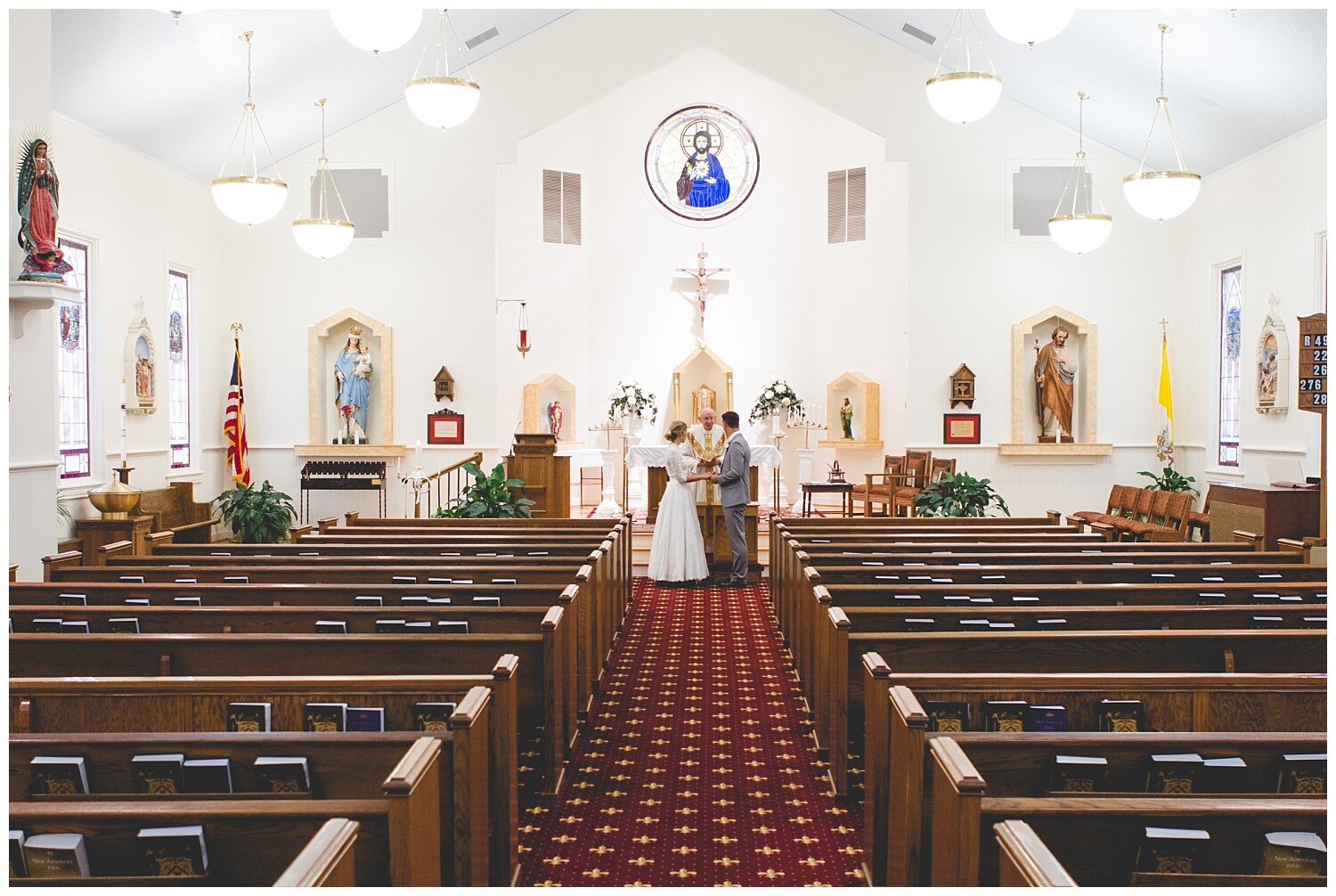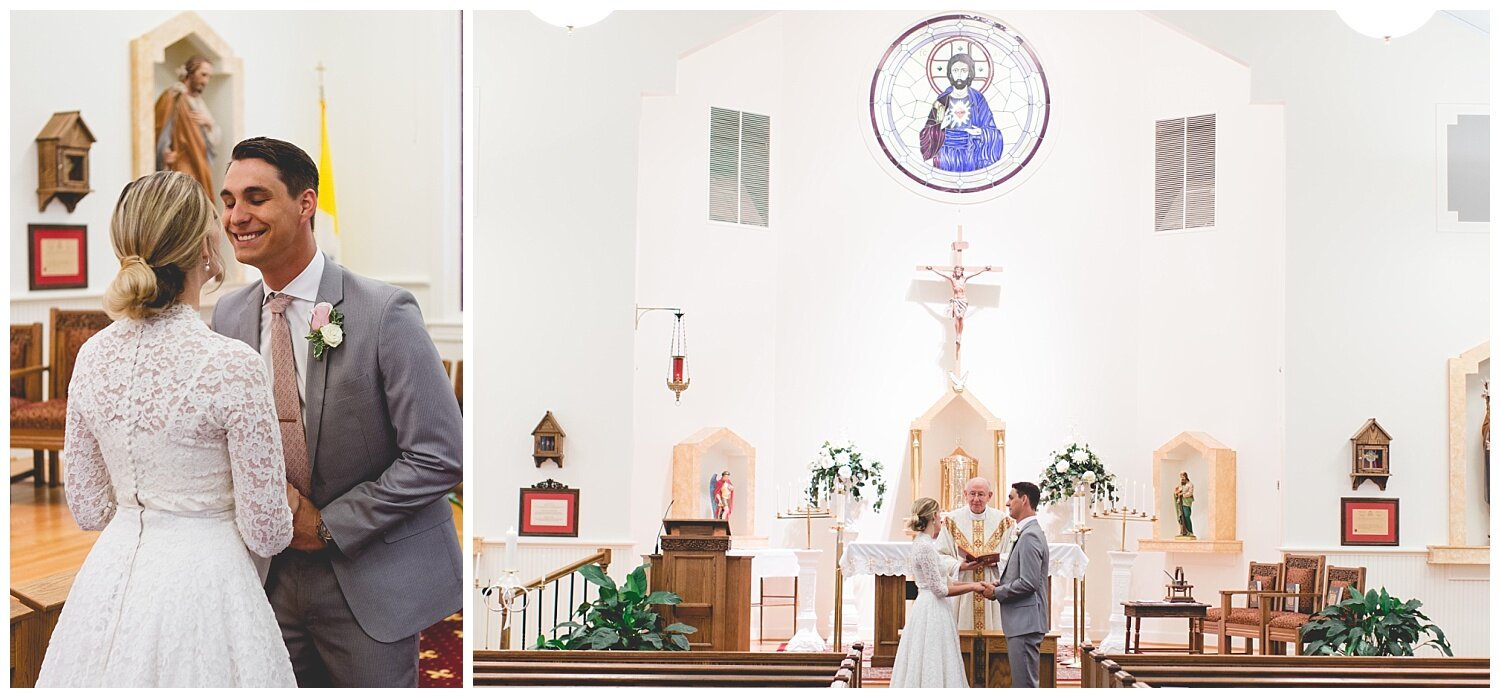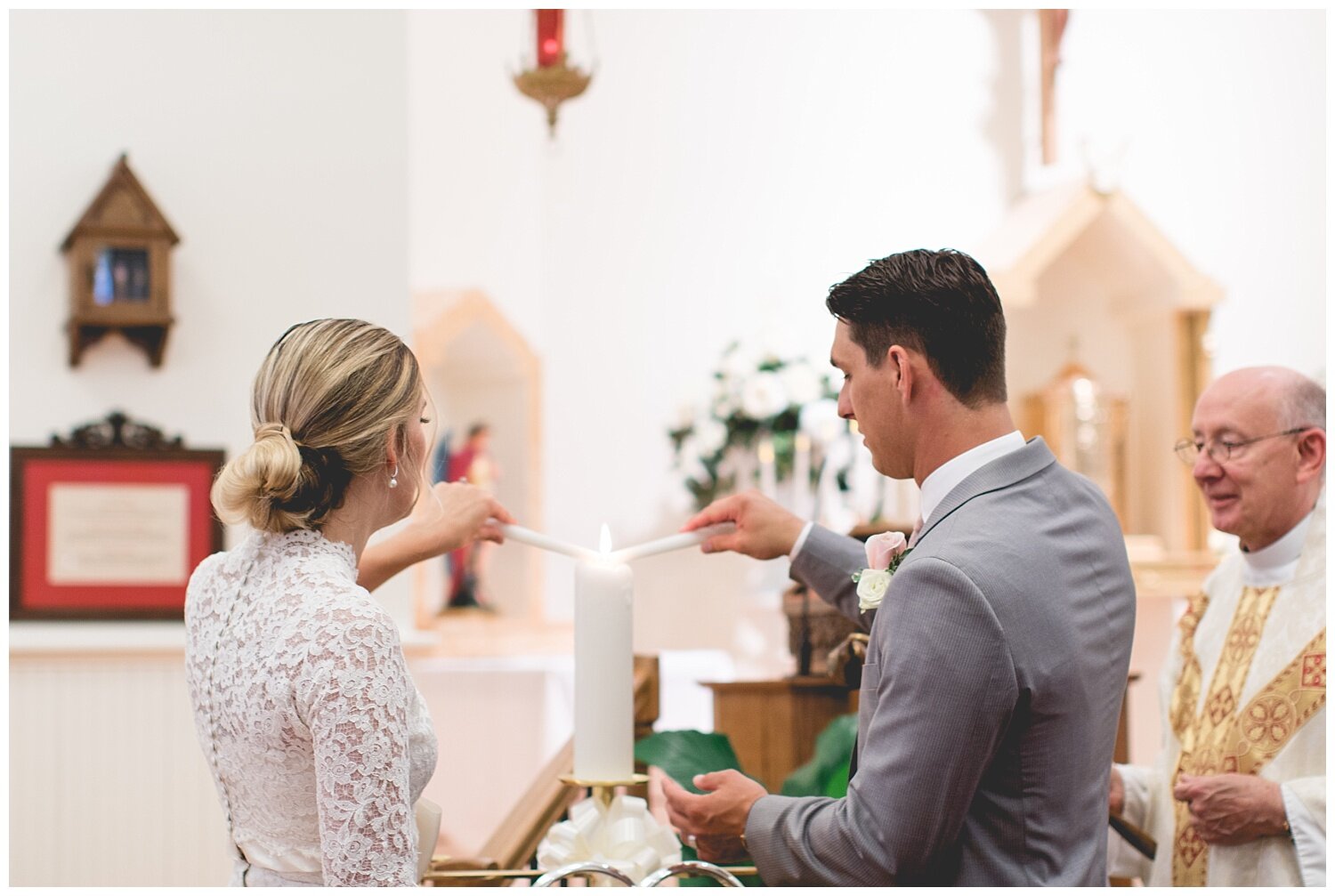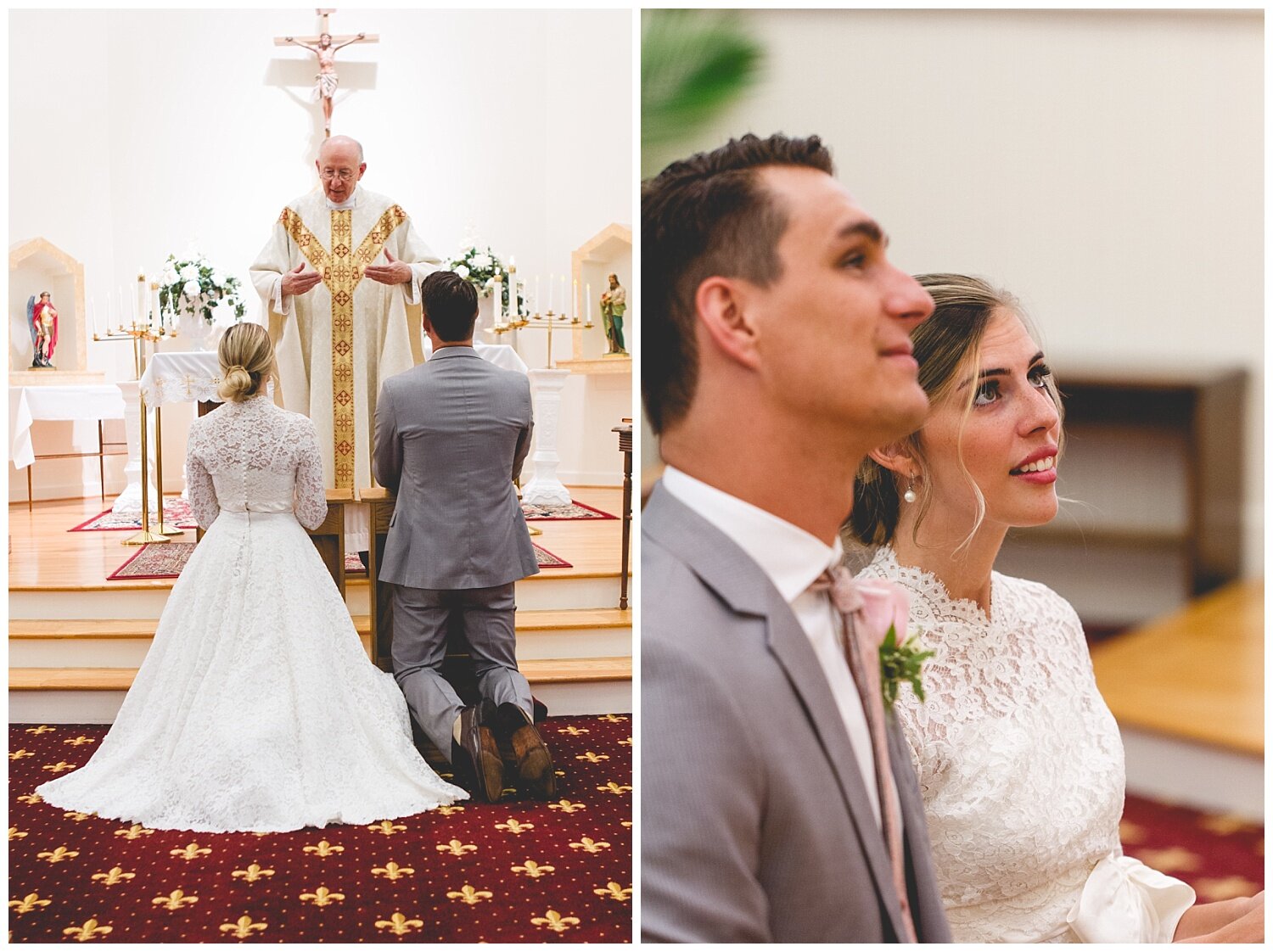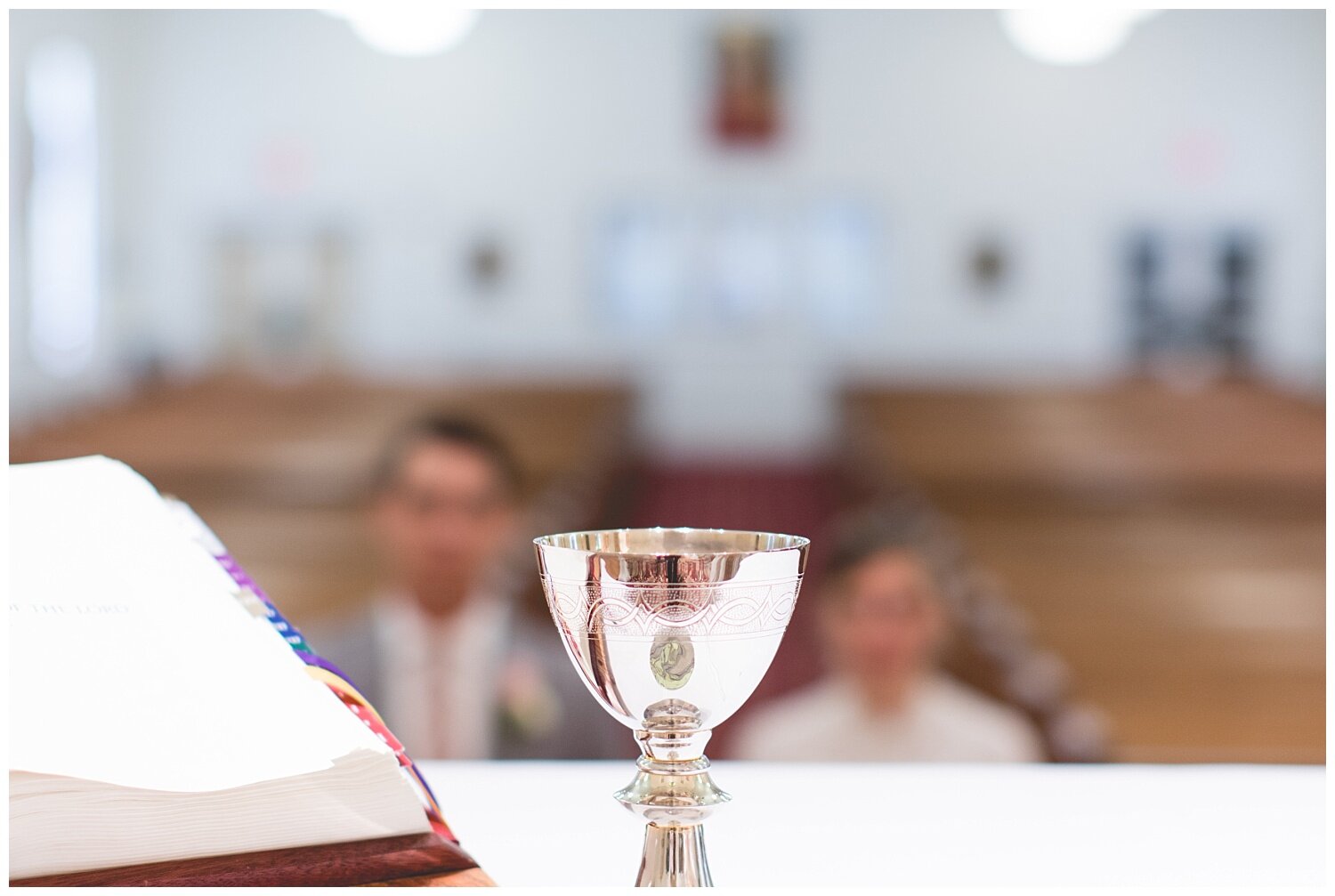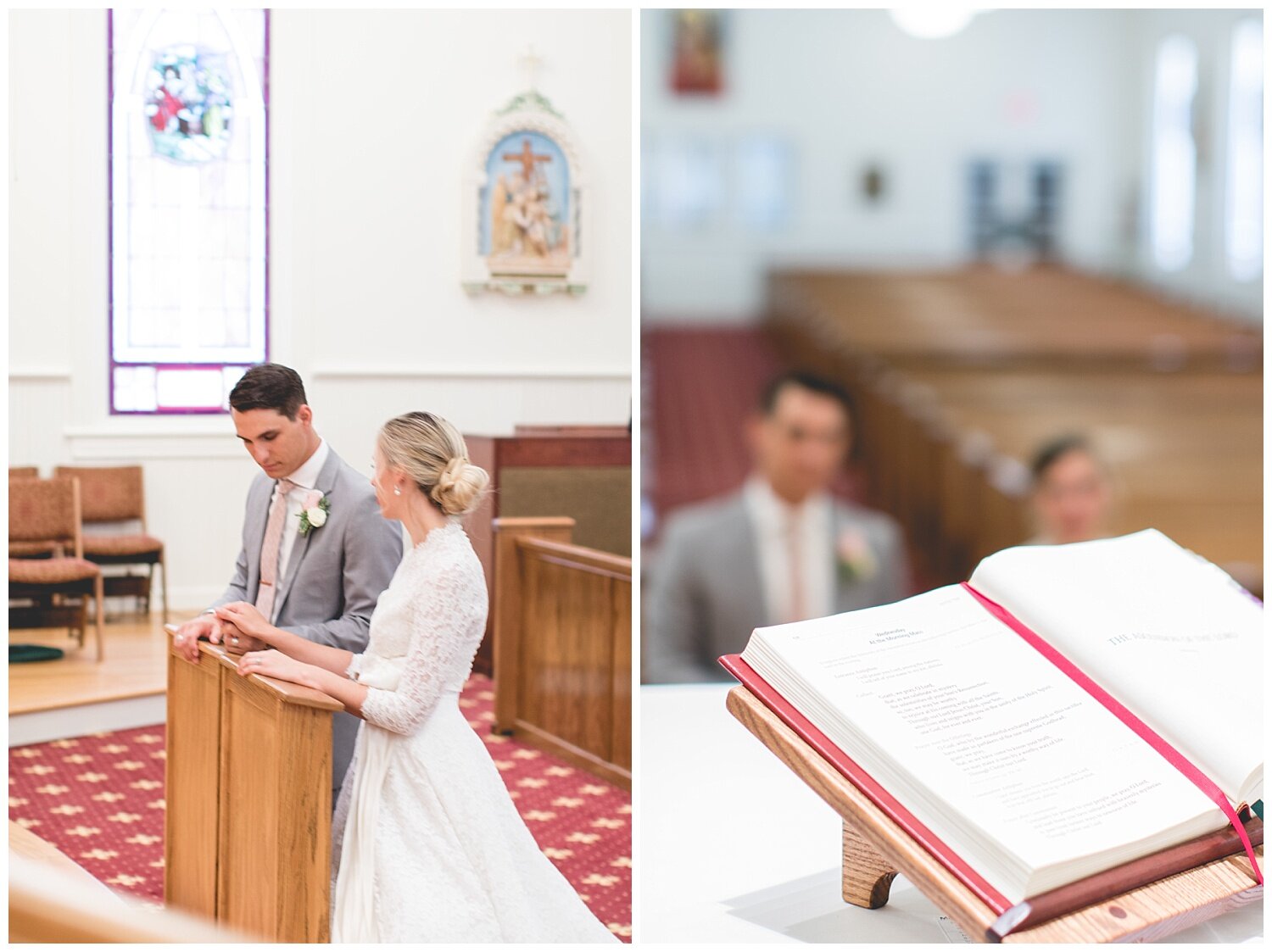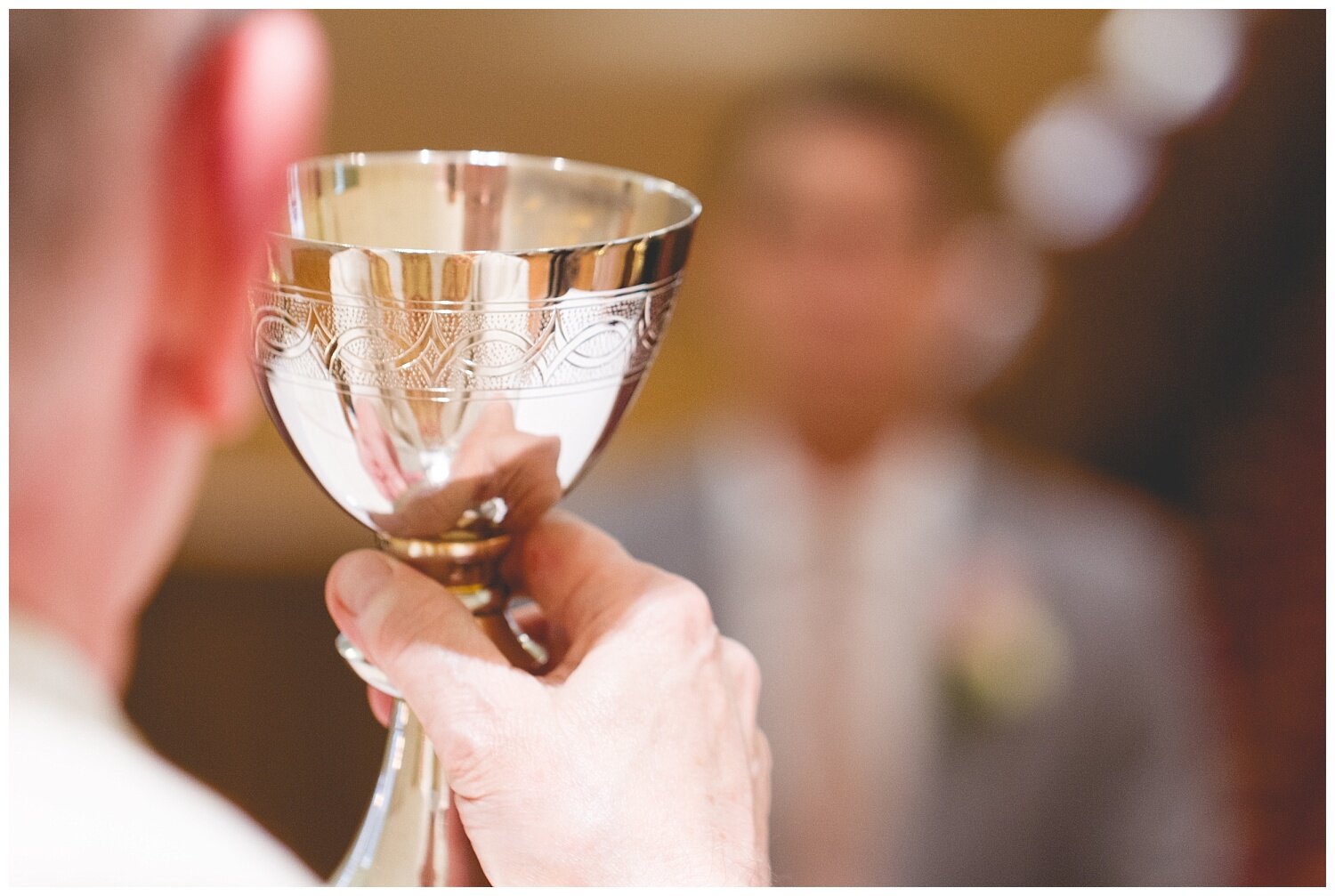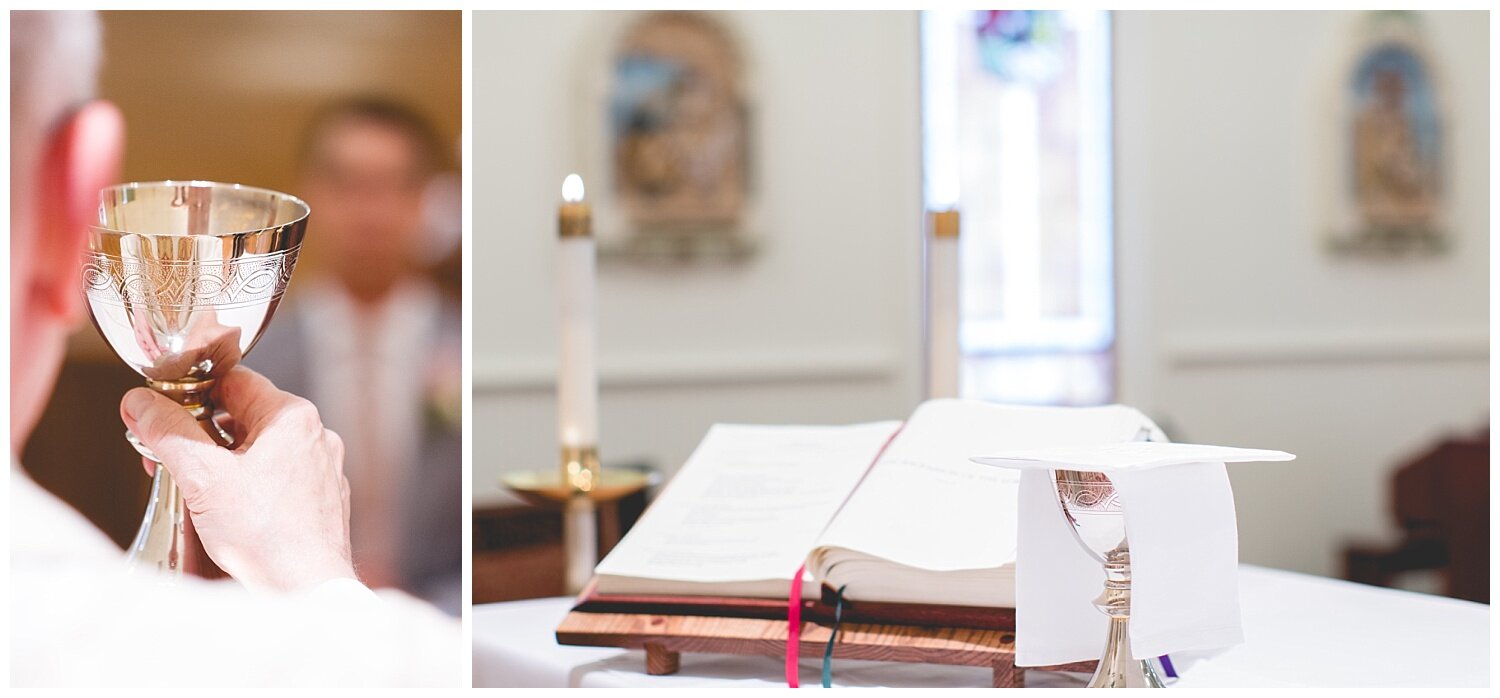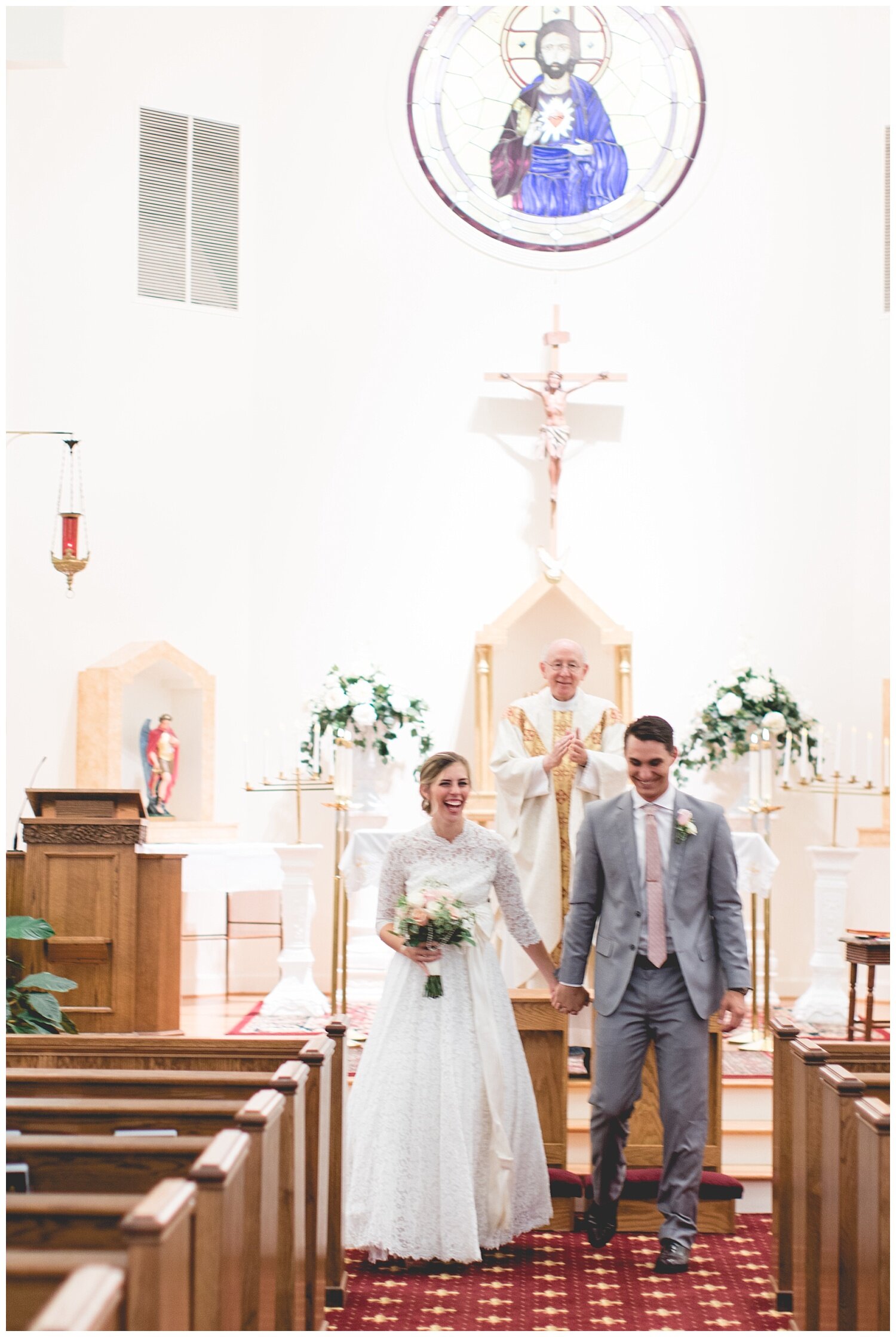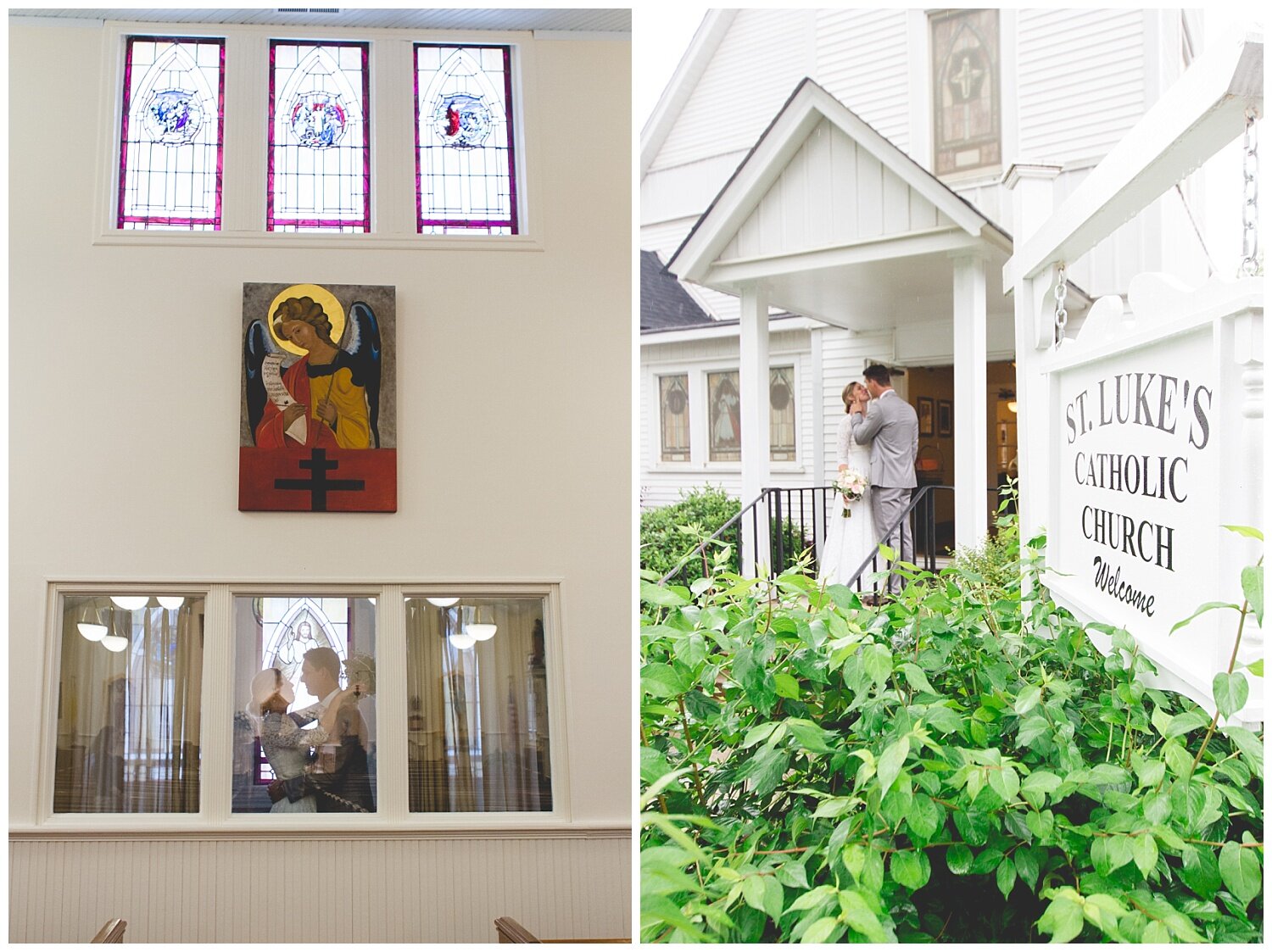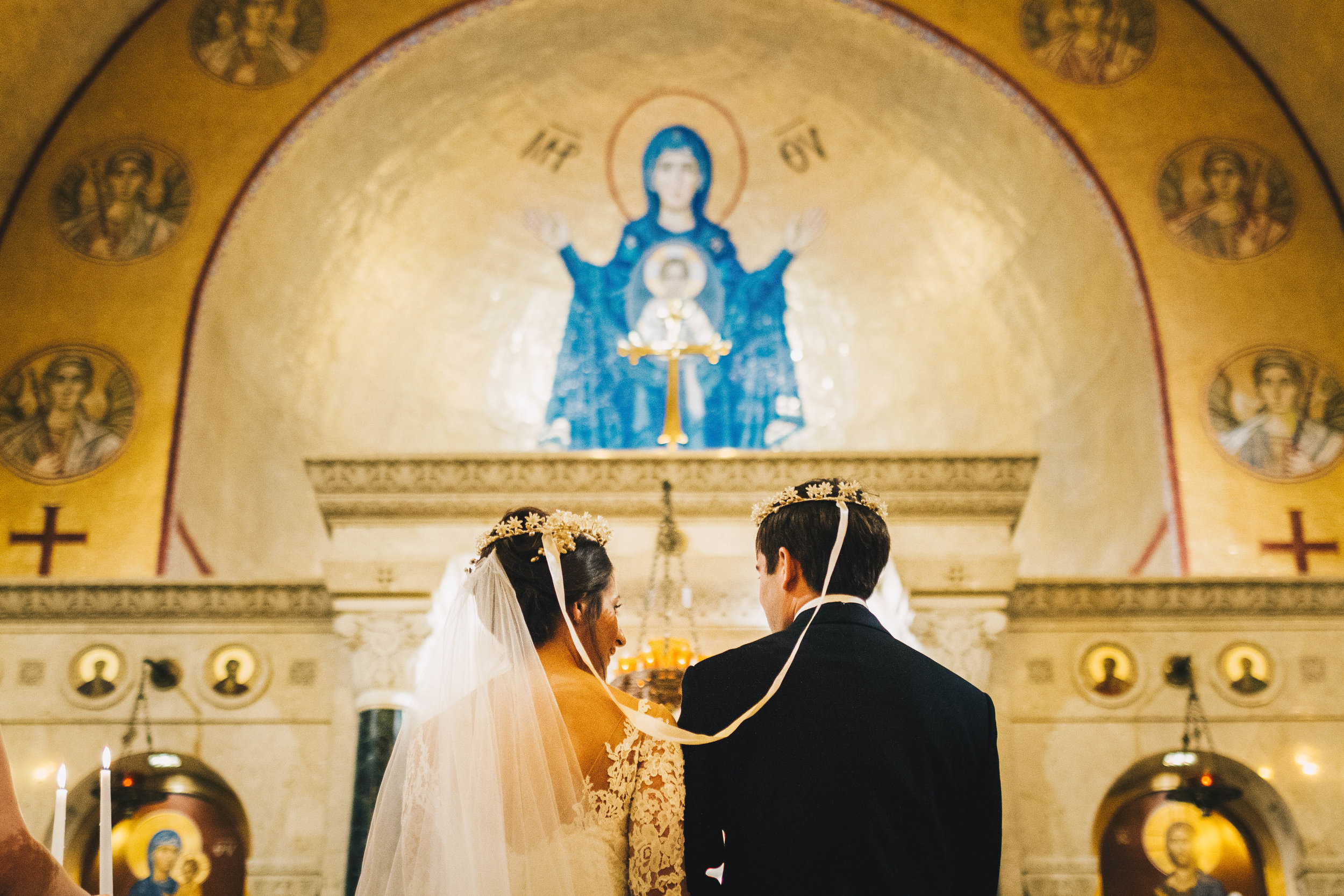You must personalize the whole day, right down to the words you say to pledge your love for your spouse.
Couples spend months trying to find the right words to highlight what makes their relationship special and adequately express their deepest thoughts and feelings.
The Church, on the other hand, does not permit couples to write and say their own vows during the wedding ceremony.
The Catholic Church does not desire to snuff out the uniqueness of each couple by requiring the traditional vows, but rather desires the couple to make of themselves a more complete gift to one another and the church.
Unity of Liturgy
As Catholics we proclaim that the Church is one, holy, and apostolic.
You can attend mass anywhere in the world and still understand the miracle taking place because our liturgy reflects this idea that we are members of a united Body.
Whether or not you choose to have a full Mass as your wedding ceremony, Catholic wedding vows are said within the context of a liturgy which contains certain essential parts.
These immutable elements, instituted by God and guarded by the Church, cannot change without affecting the validity of the sacrament.
But even more importantly, the traditional Catholic wedding vows remind the couple that they are part of something much larger than themselves.
They unite the couple, not only with one another, but with the entire Body of Christ across time and place.
Related: Why it matters that we are getting married in a Church
Canon Law
According to the Catechism of the Catholic Church, “The Church holds the exchange of consent between the spouses to be the indispensable element that ‘makes the marriage.’”
Consent in terms of Catholic marriage means that the couples acknowledge that the come freely and wholeheartedly to promise their fidelity to each other, and their acceptance and upbringing of children.
Consent is vital for a valid marriage in the eyes of the Church.
And since a couple declares consent during the wedding vows, the Code of Canon Law requires that the wording of the consent is made abundantly clear.
If the vows contain wording that place conditions or limits on the marriage, than the Church may have reason to doubt the validity of the sacrament.
Related: Why I’m grateful for traditional wedding vows
Sacred Covenant
“The sacred character of the marriage rite must not be compromised at the altar with romanticism,” wrote Archbishop Socrates Villegas of Lingayen-Dagupan.
Despite what the wedding industry will try to sell you, your special day is about more than just you and your feelings for your spouse.
The day contains a sacredness that goes far beyond the couple. And human words will ultimately fall short of the depth and mystery of the eternal weight which is contained in this special moment.
When the couple recites their vows, they not only enter into a deeper relationship with one another, but they establish an eternal and unbreakable covenant with God Himself.
The vows given to us by the Church are divinely inspired and reflect the sacredness of the moment in which the two become one.
They allow you to look beyond the joyful feelings of the day and openly receive the grace to help you through the seasons of difficulty.
And they invite God to be the foundation upon which you build your life together.


